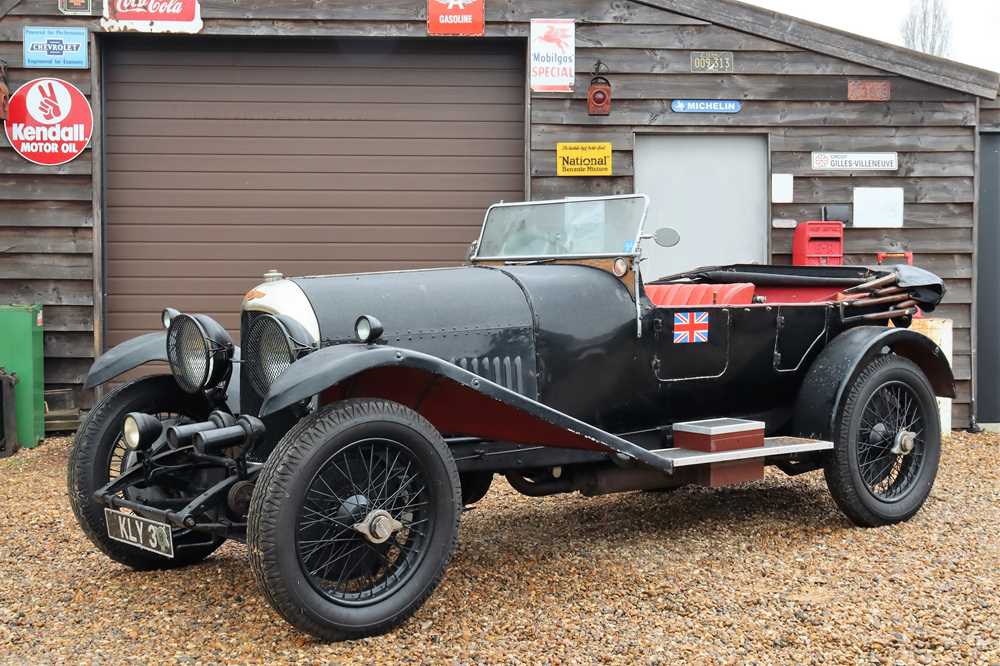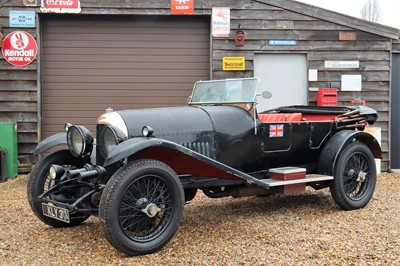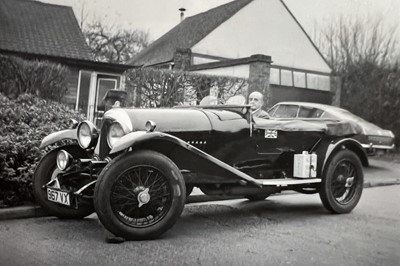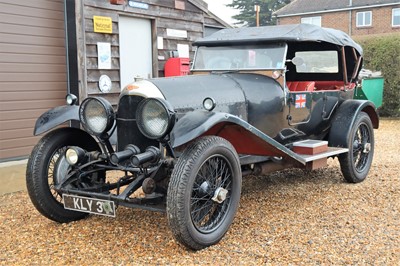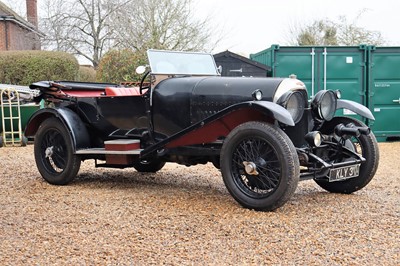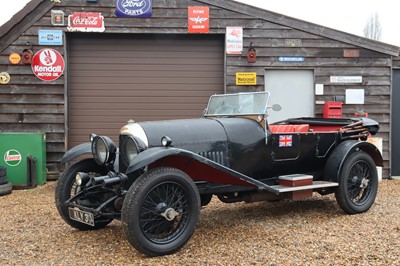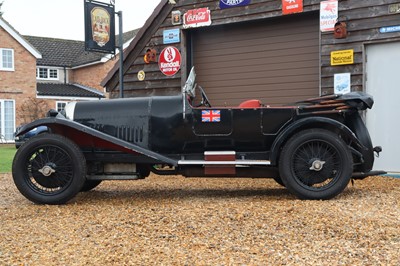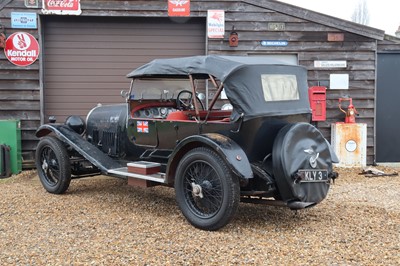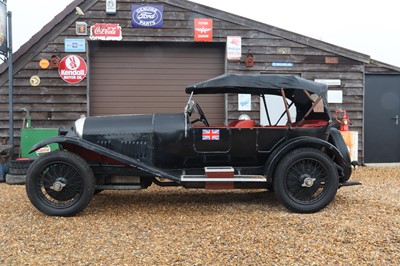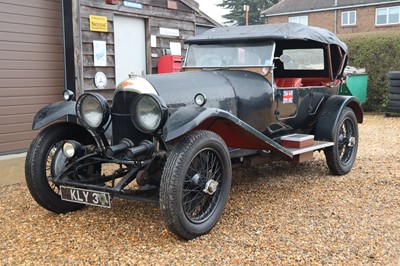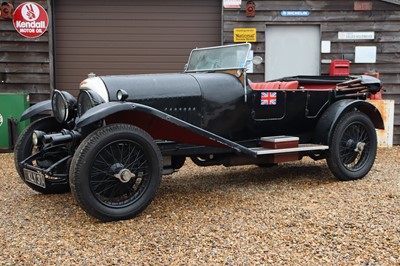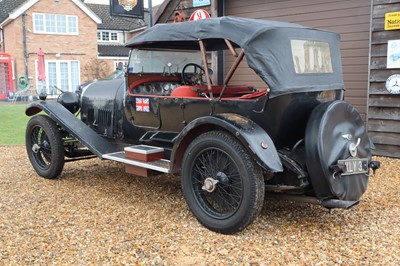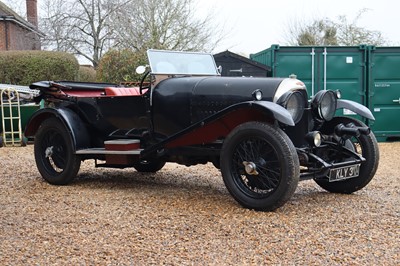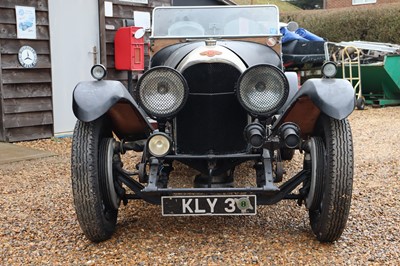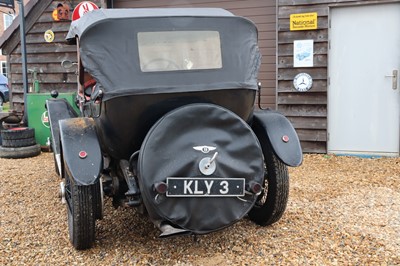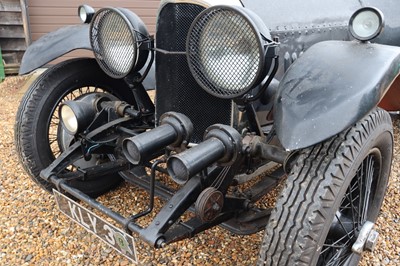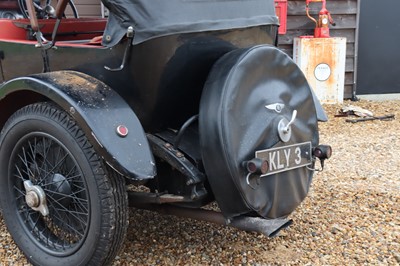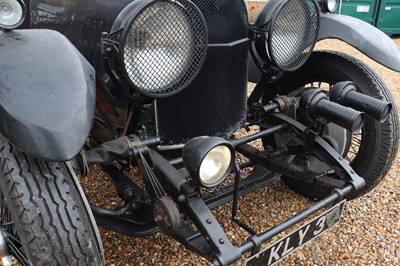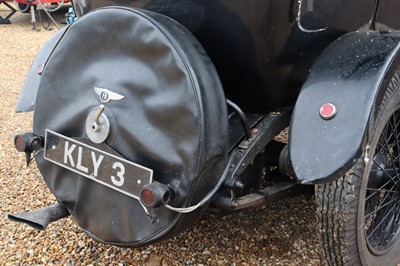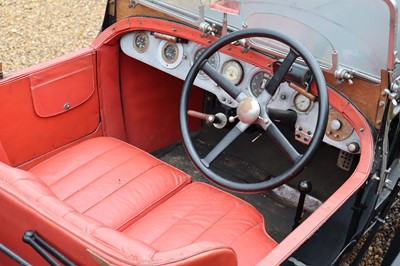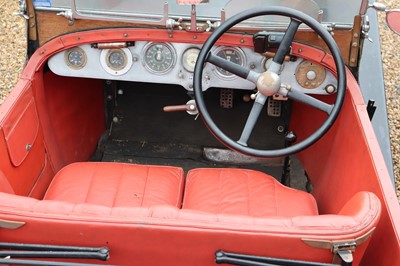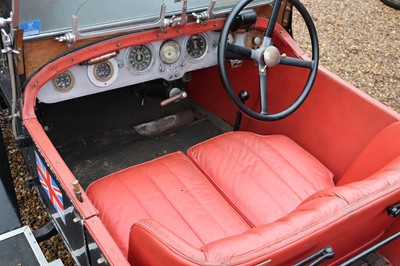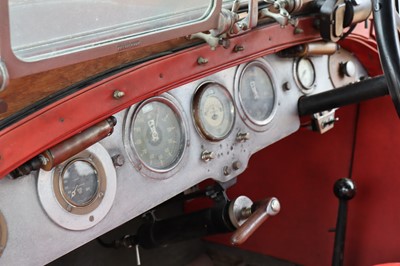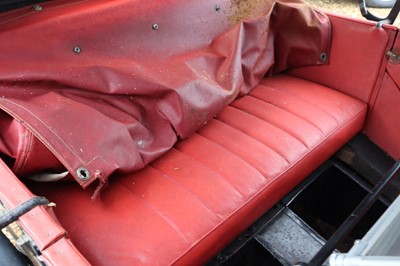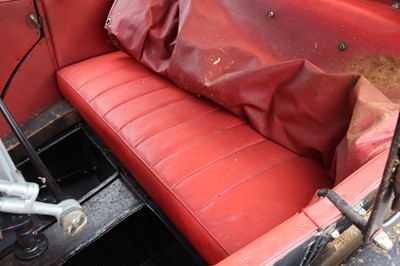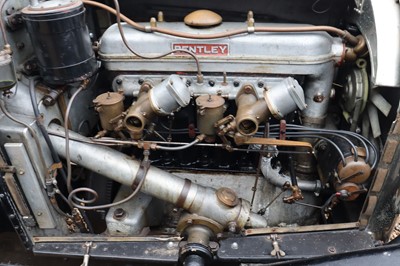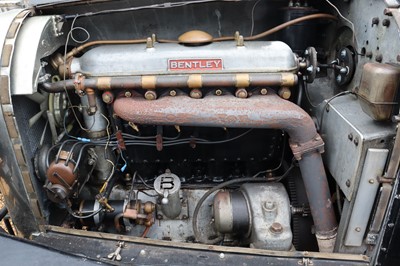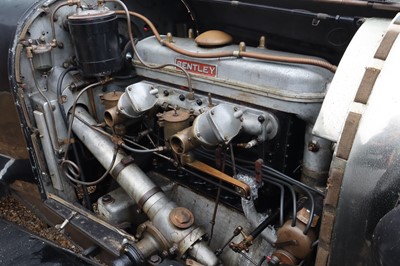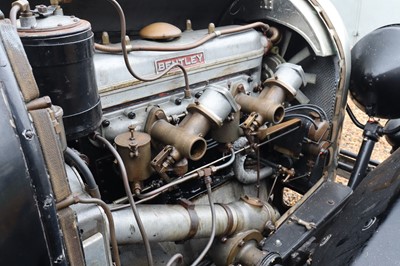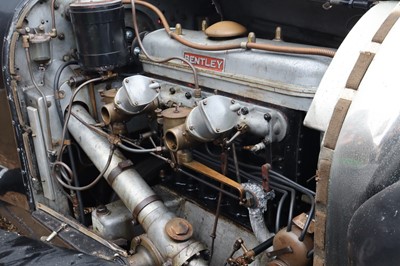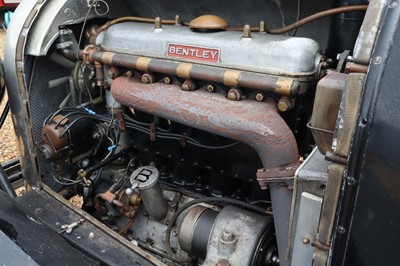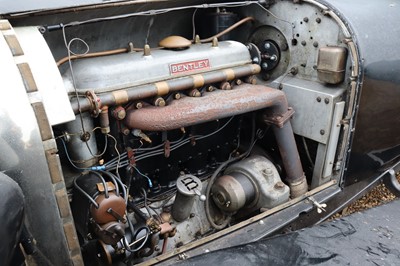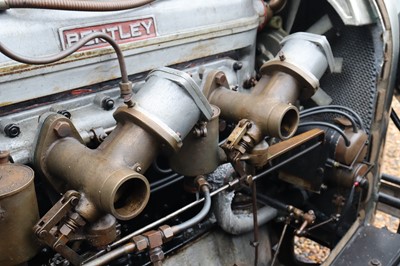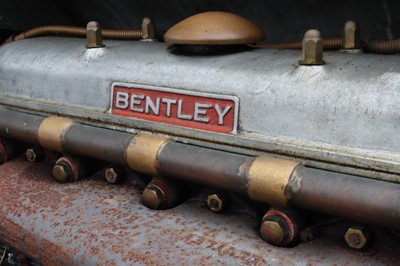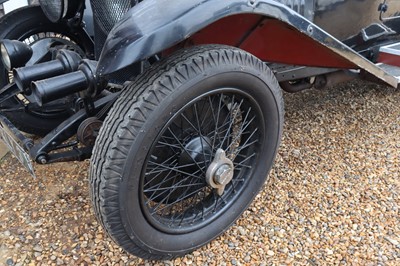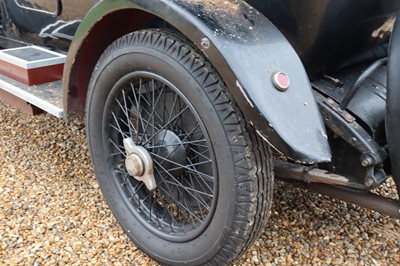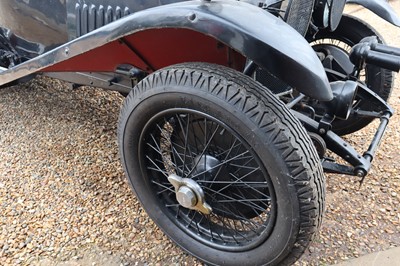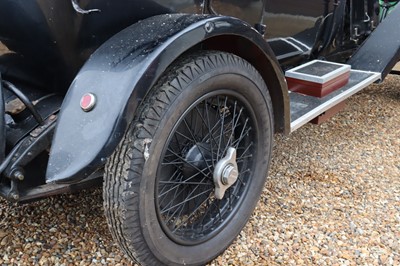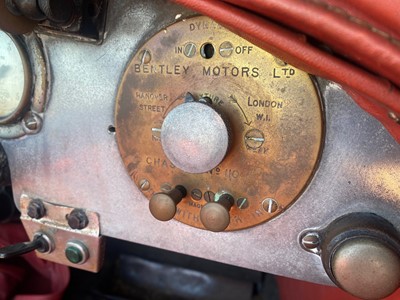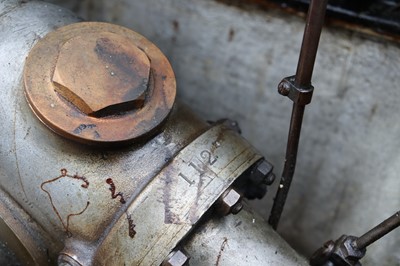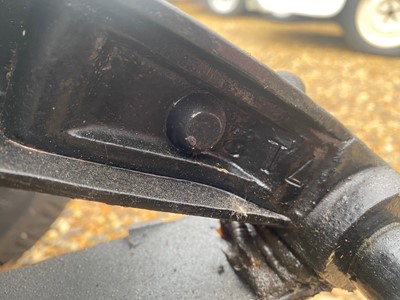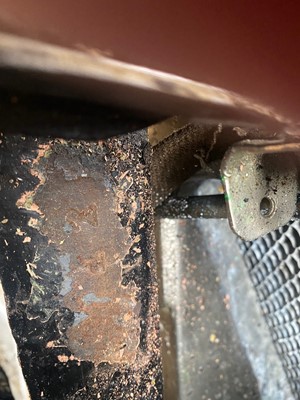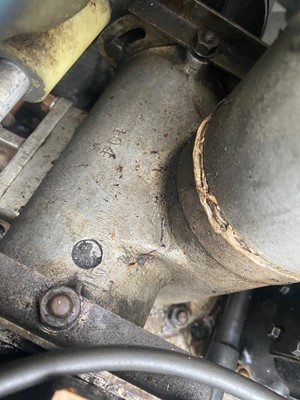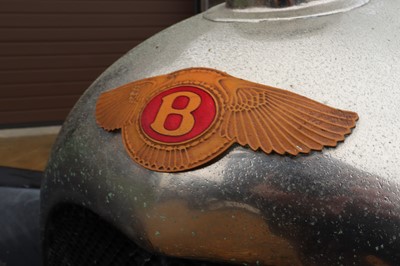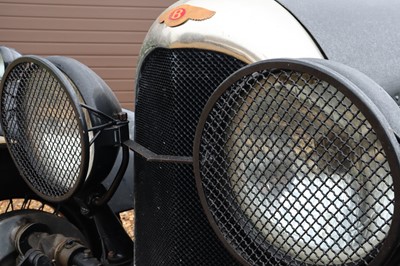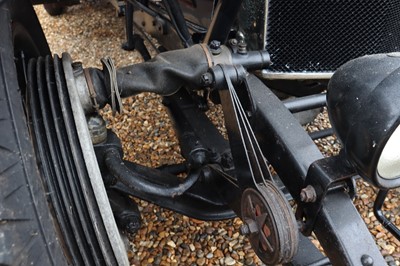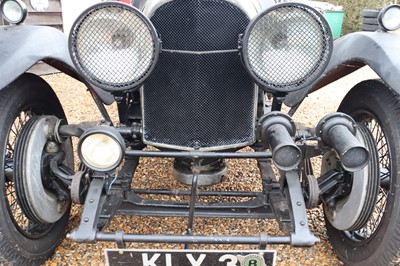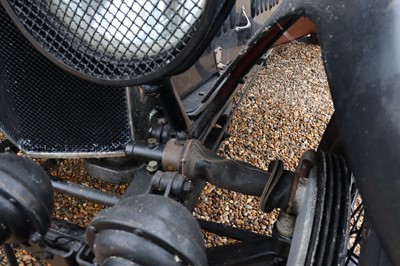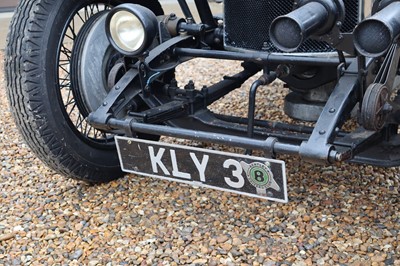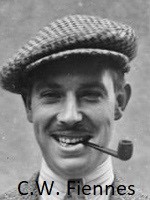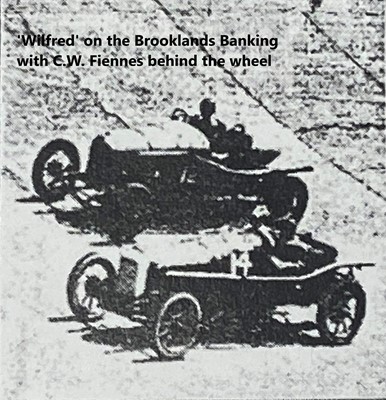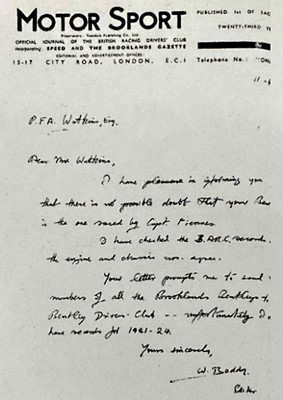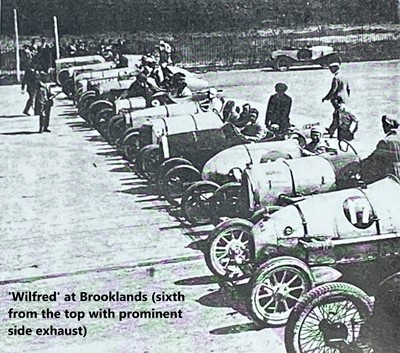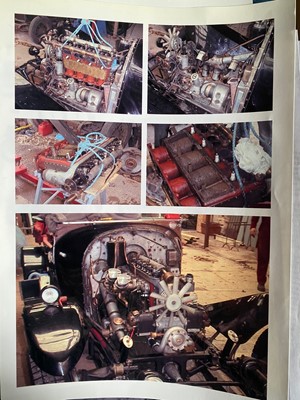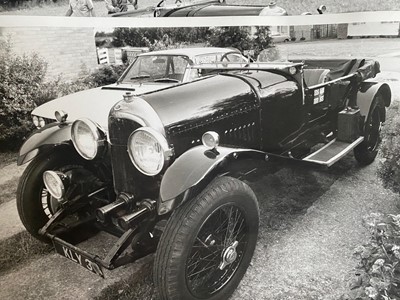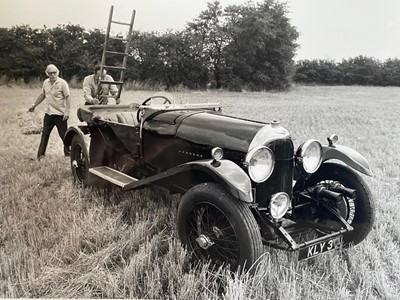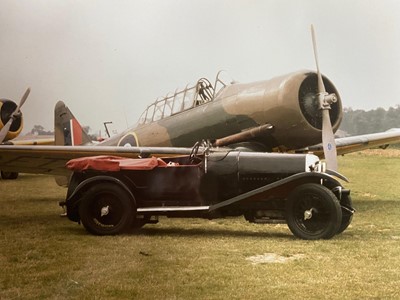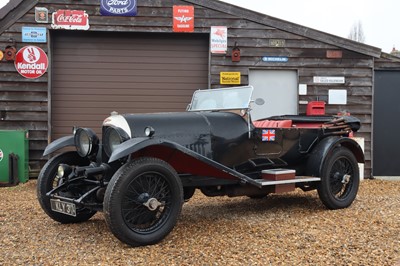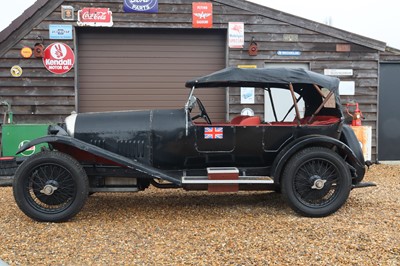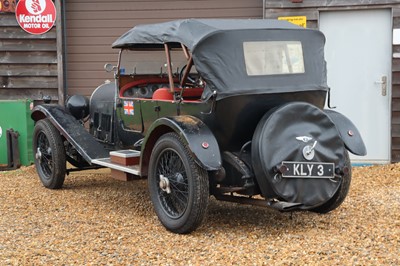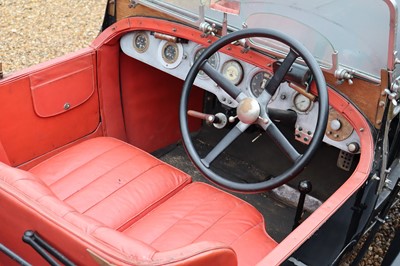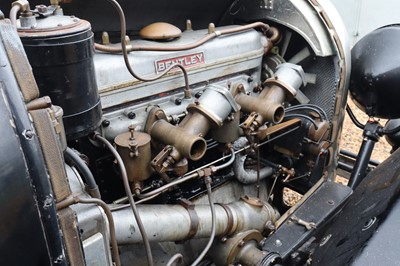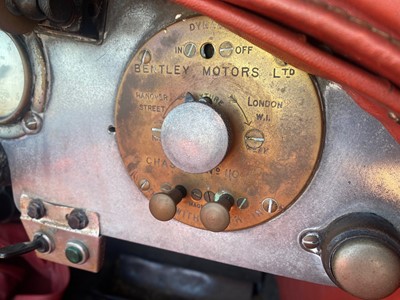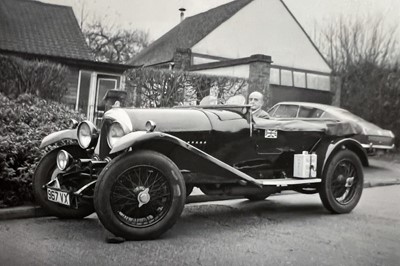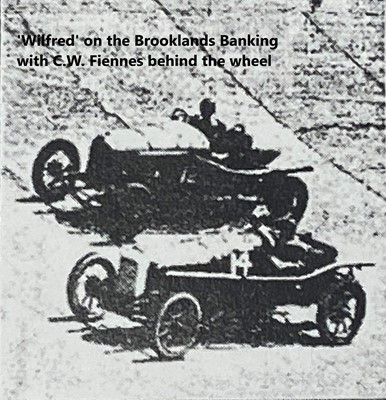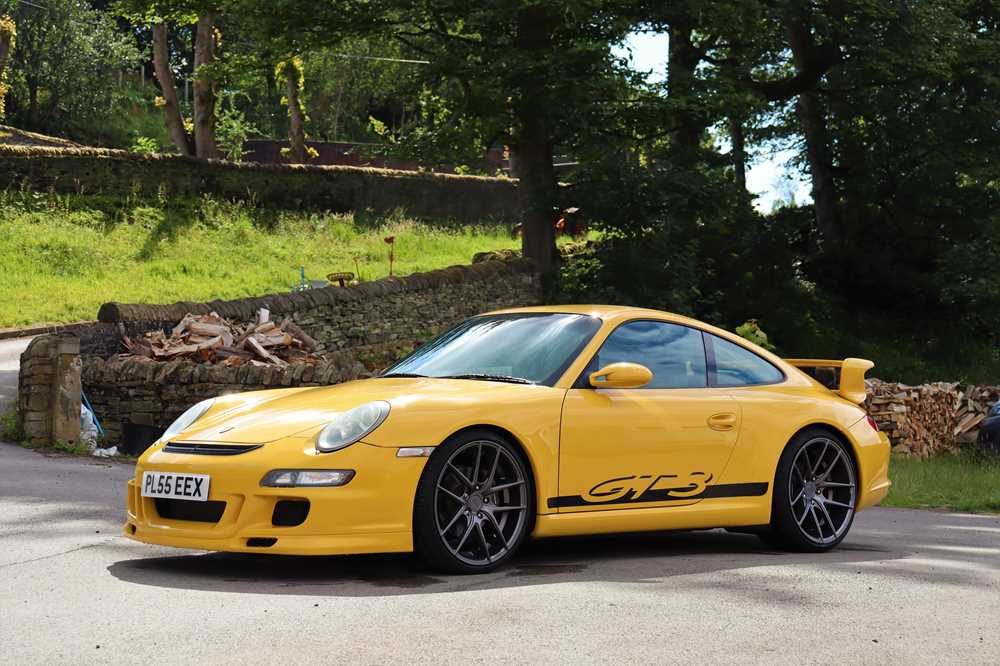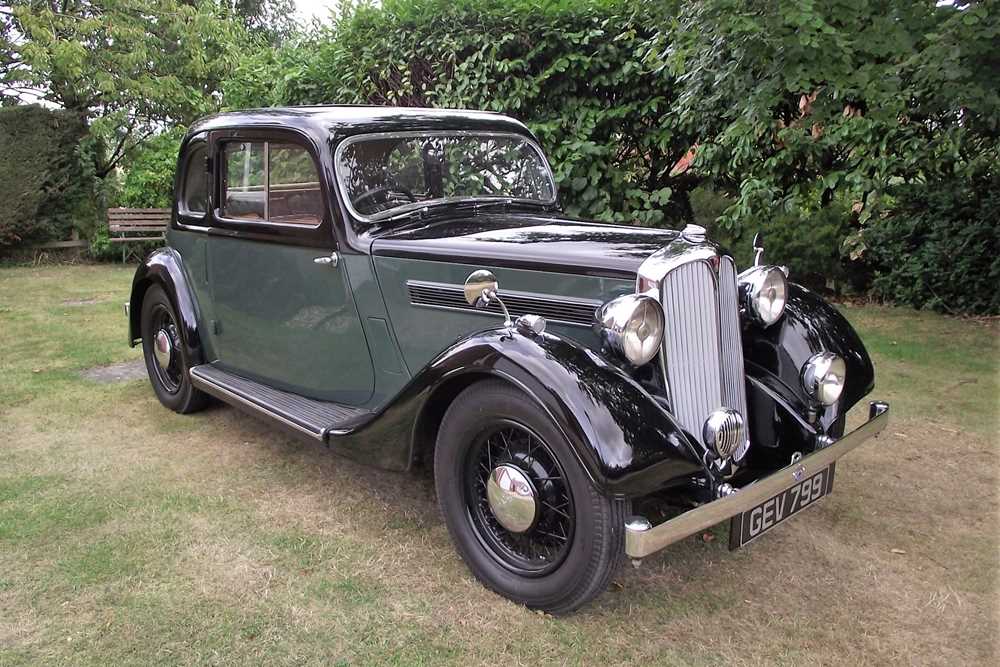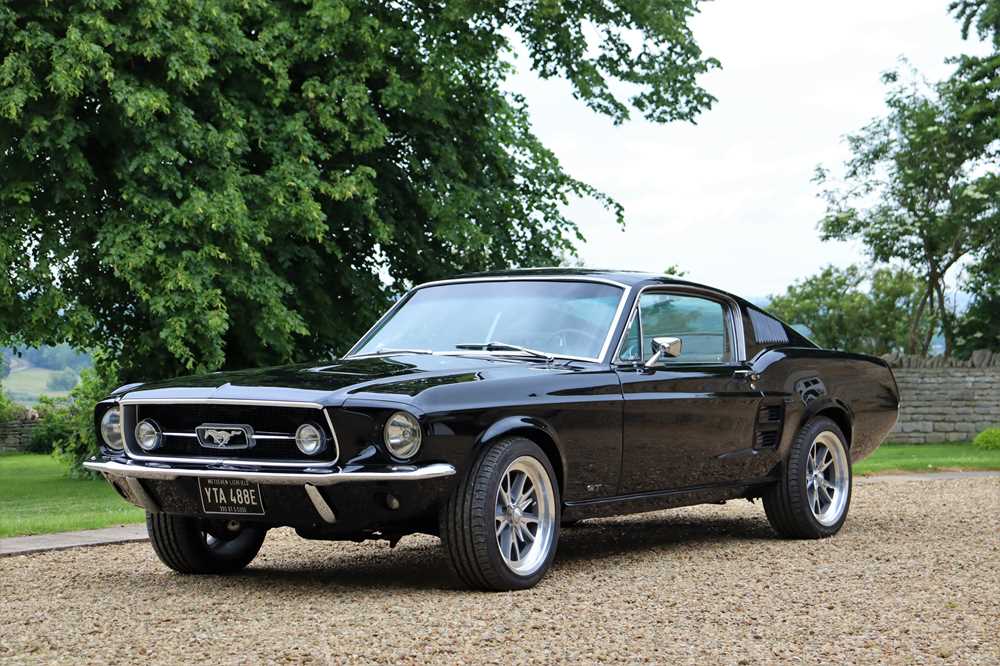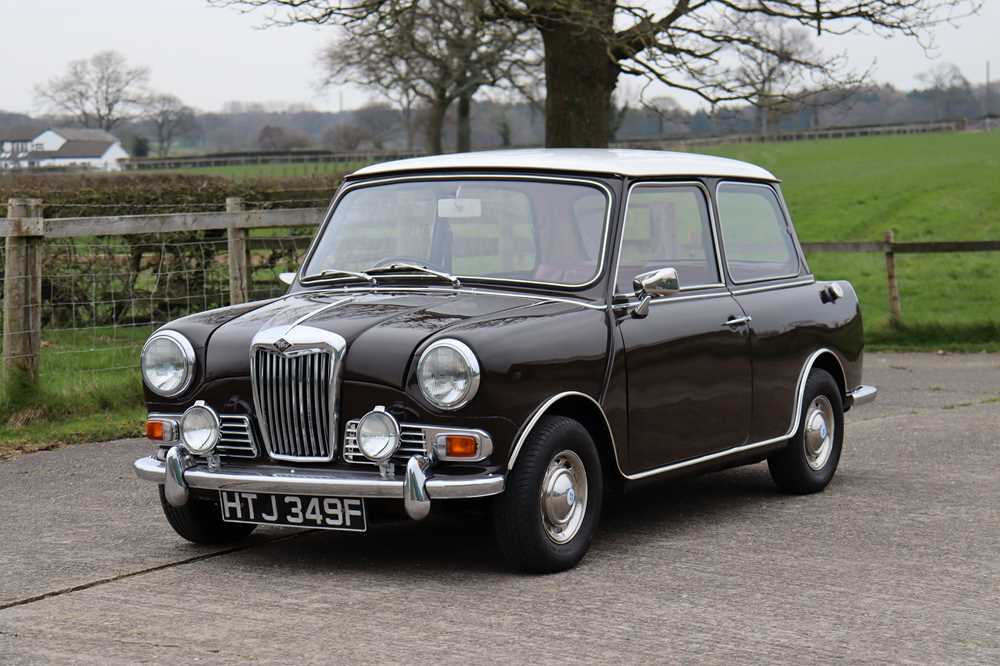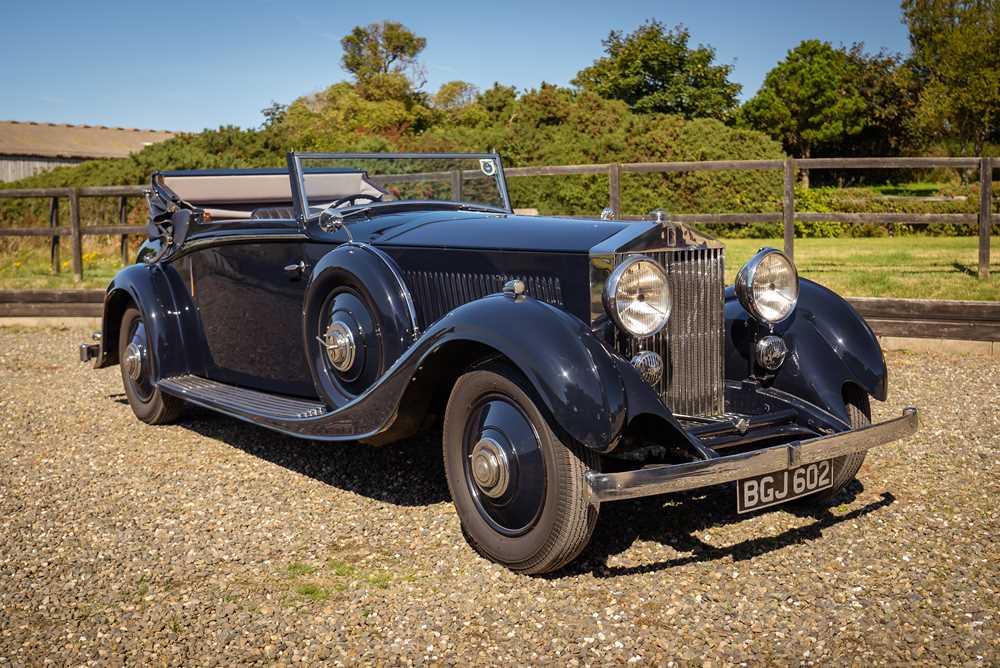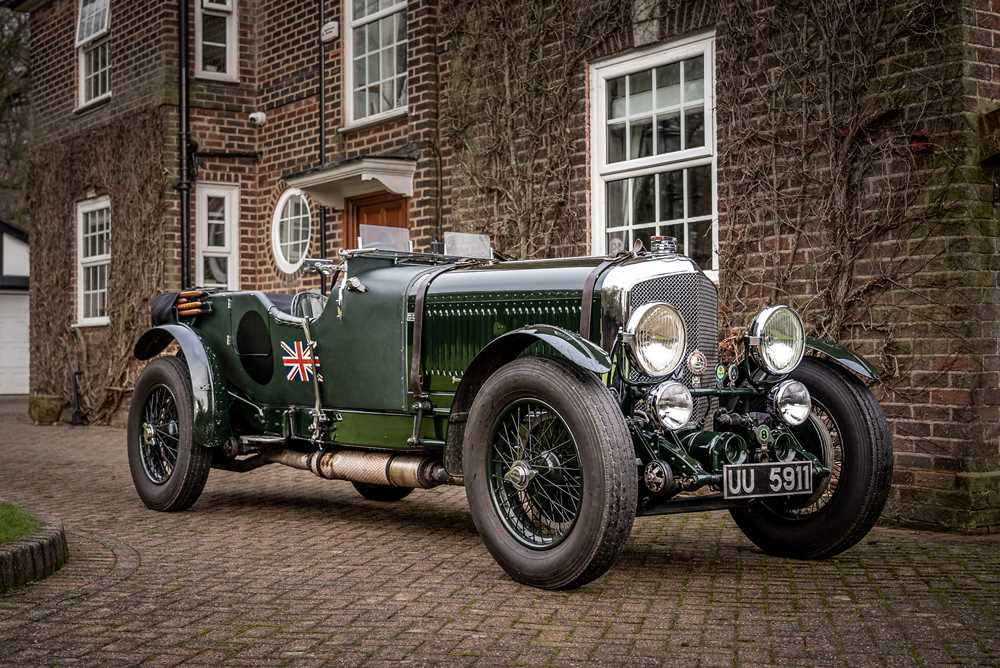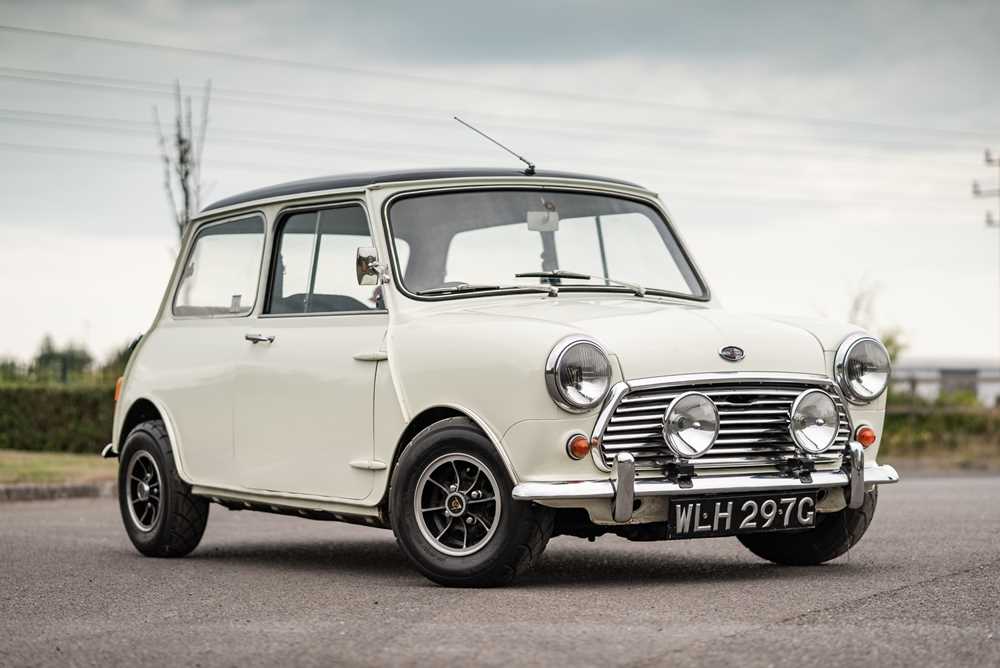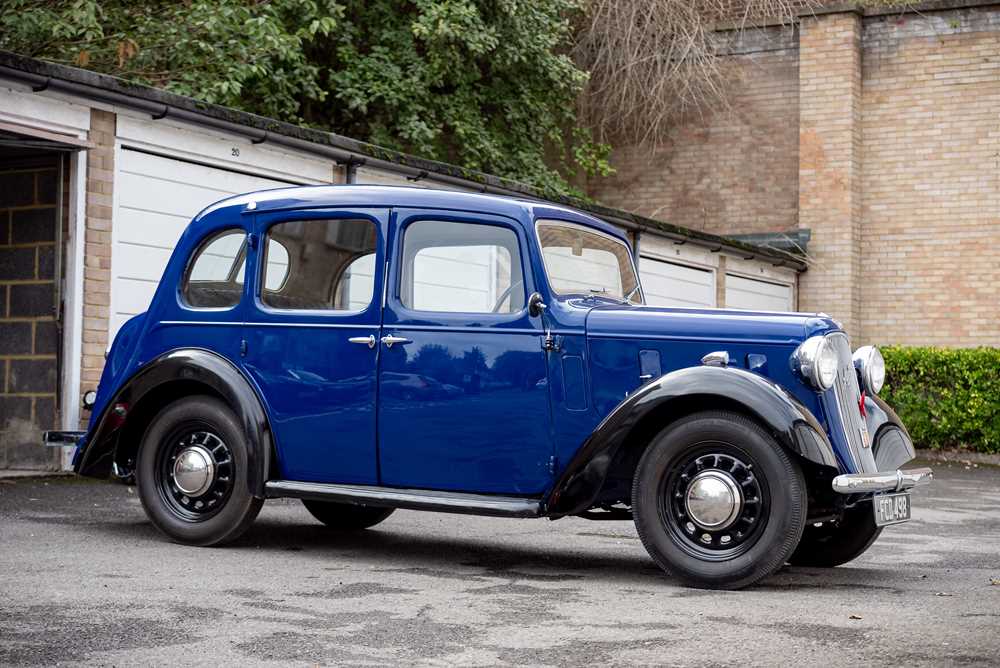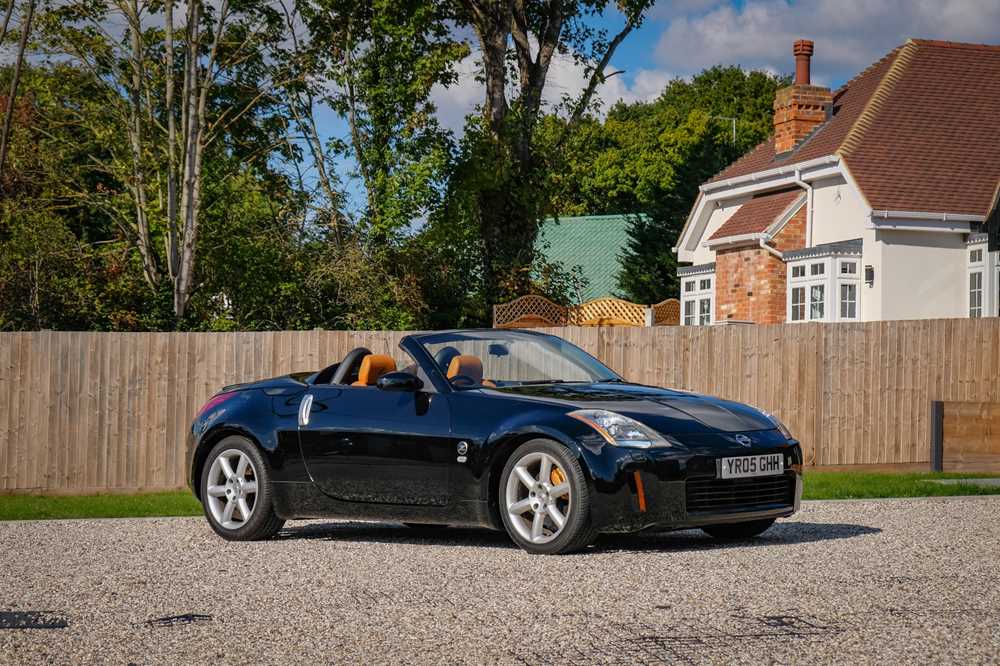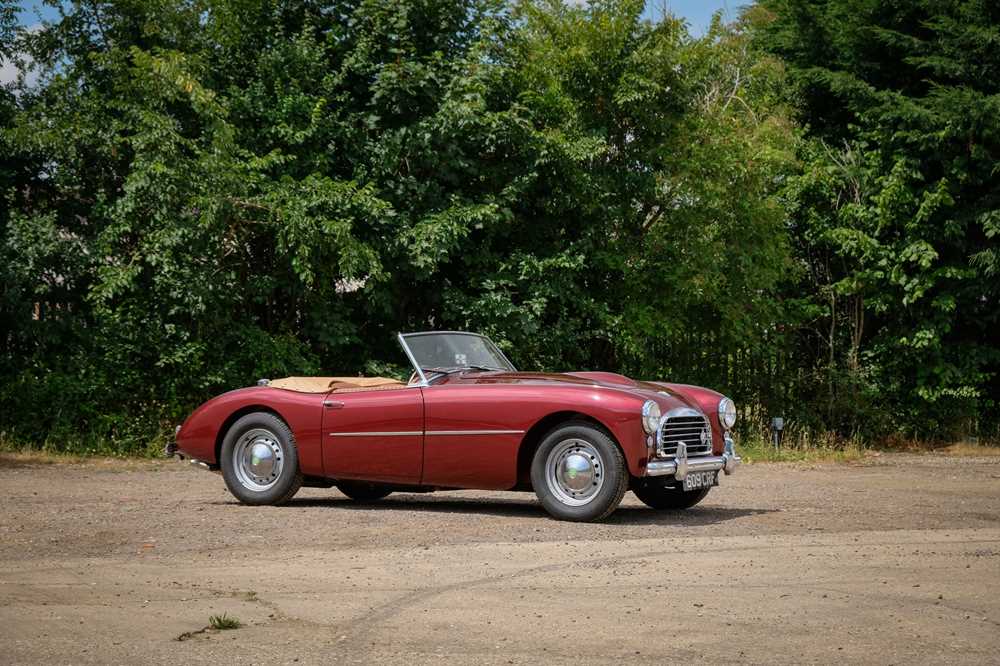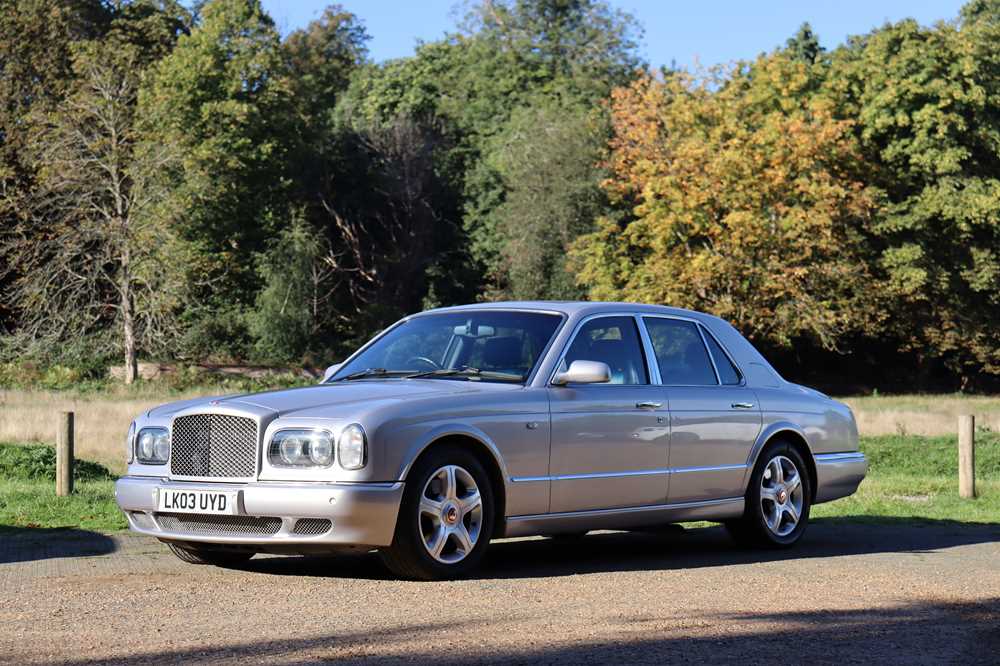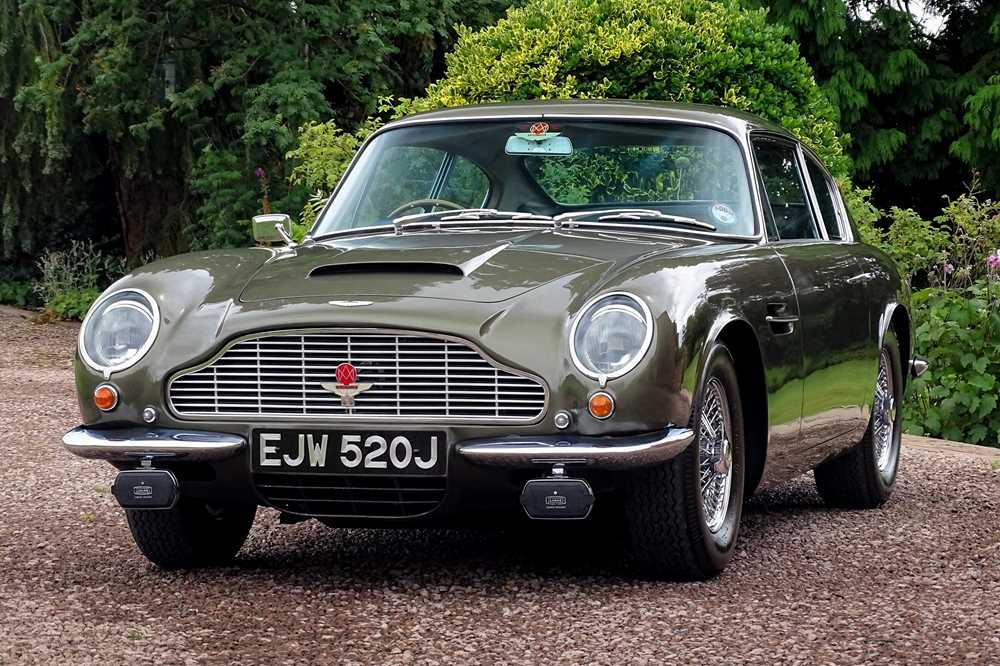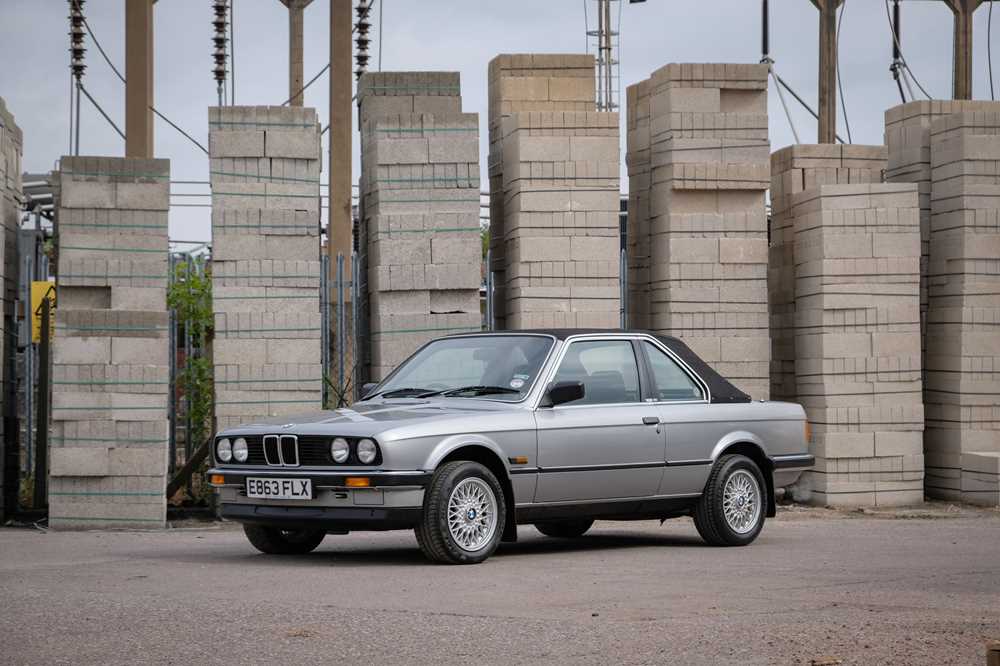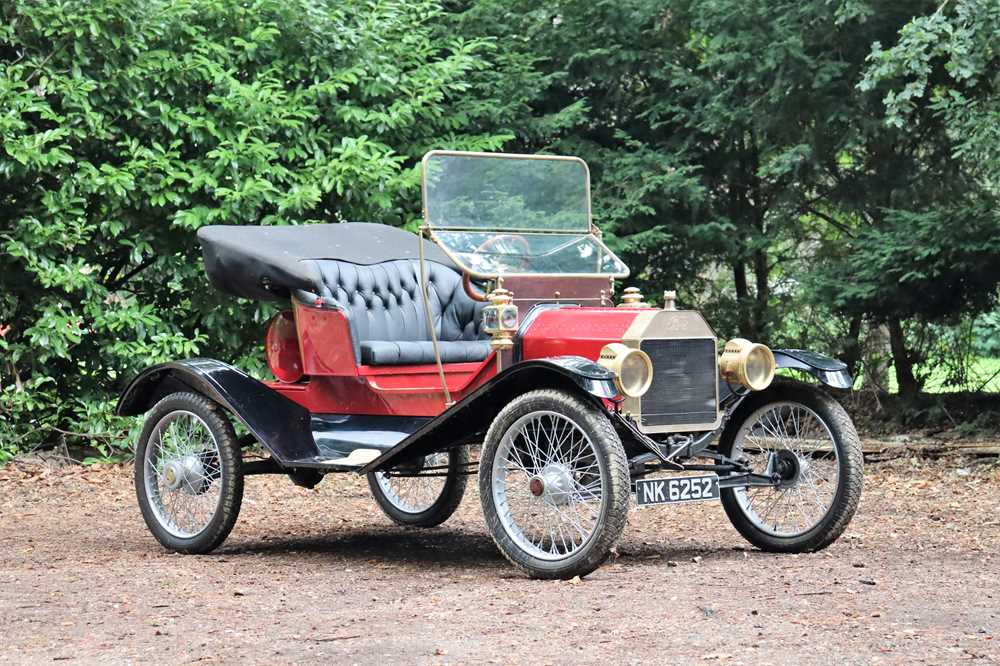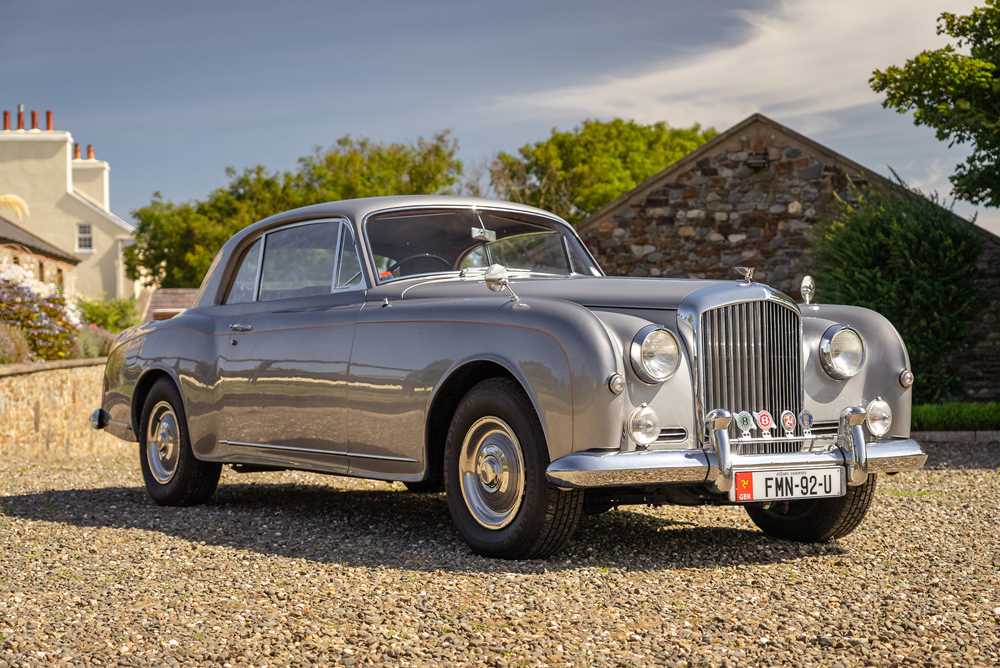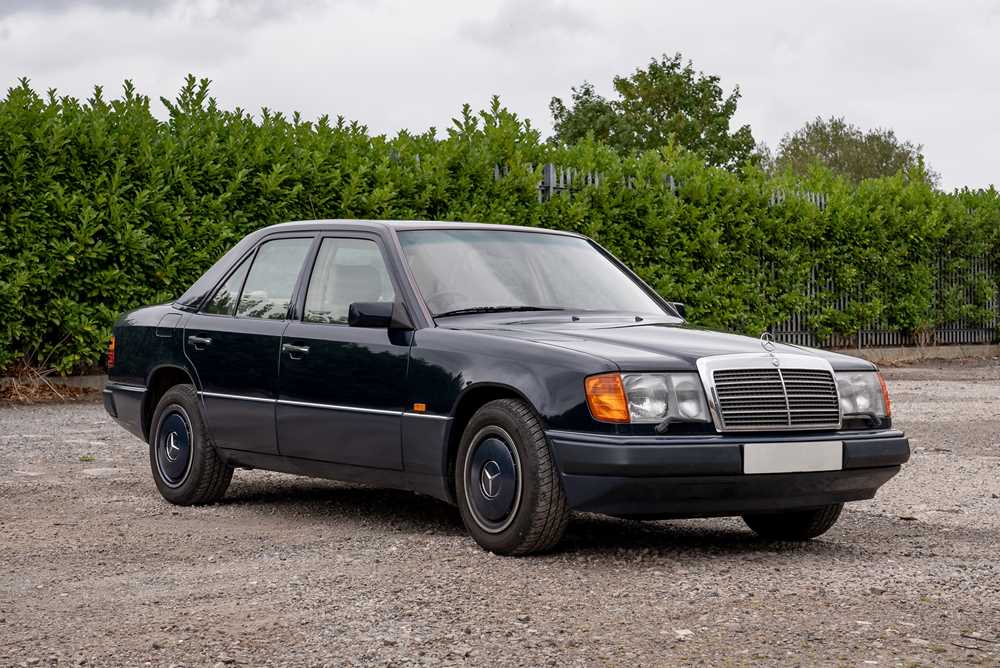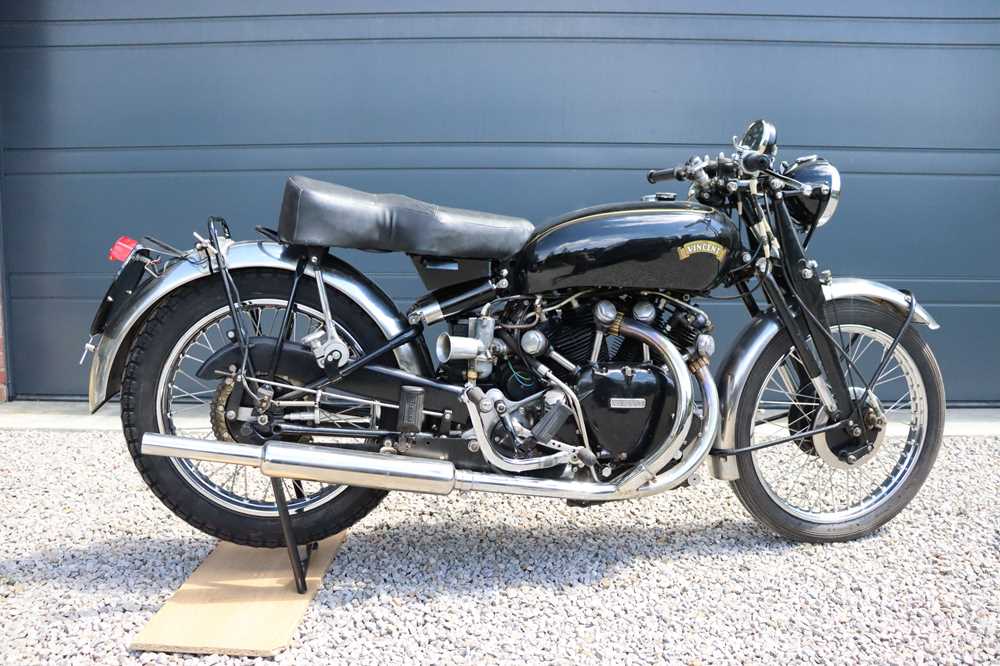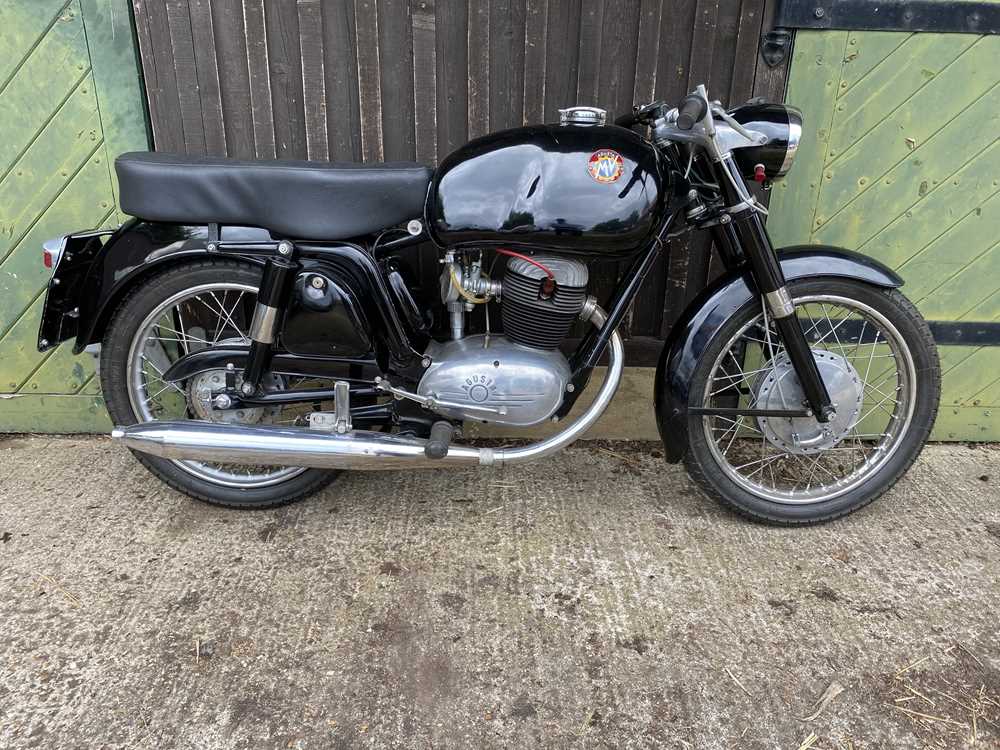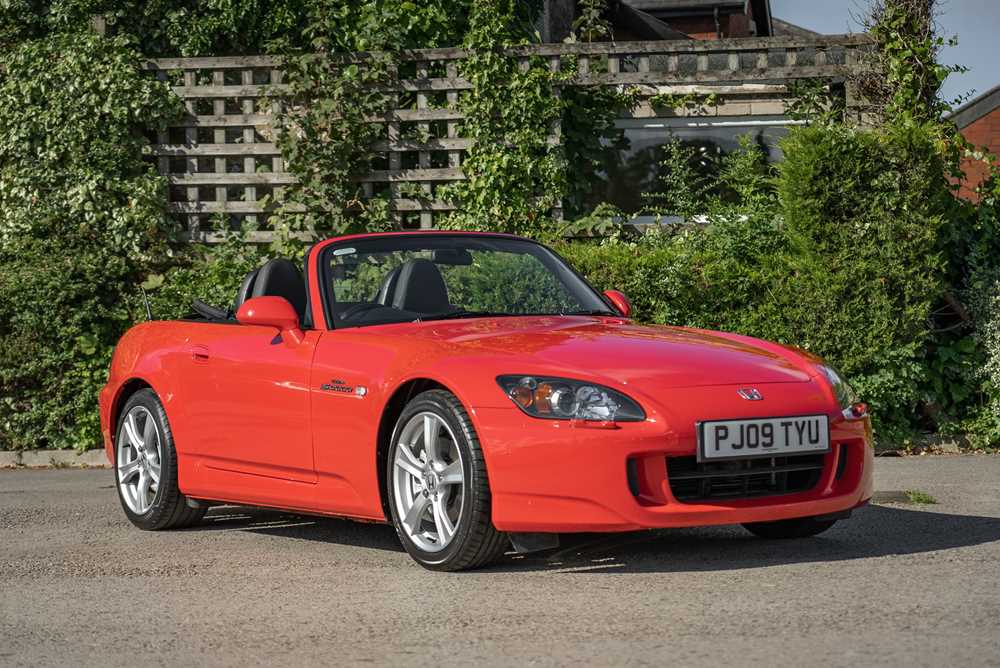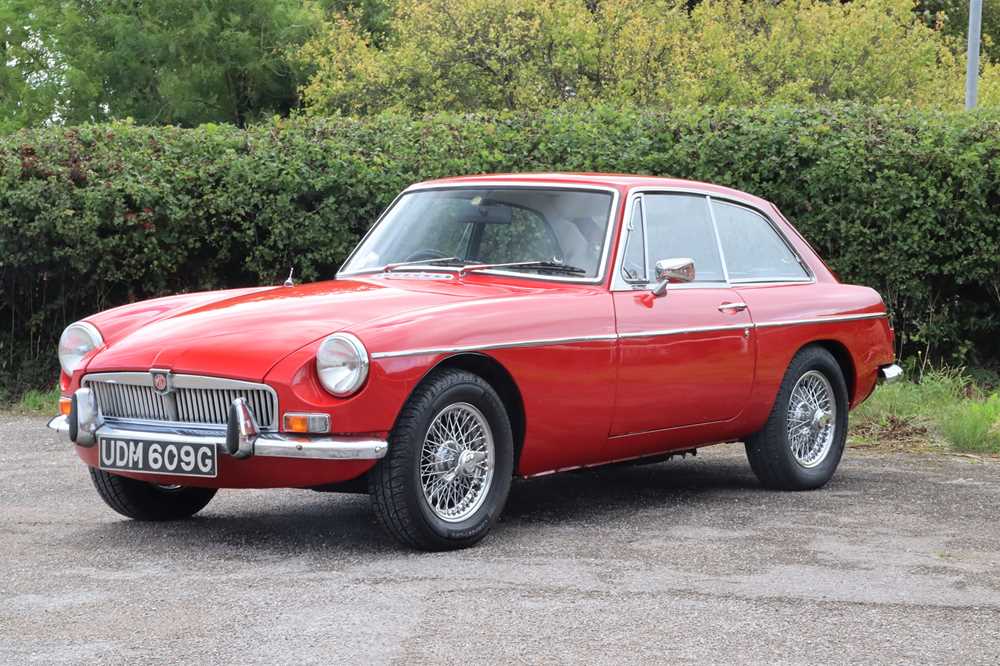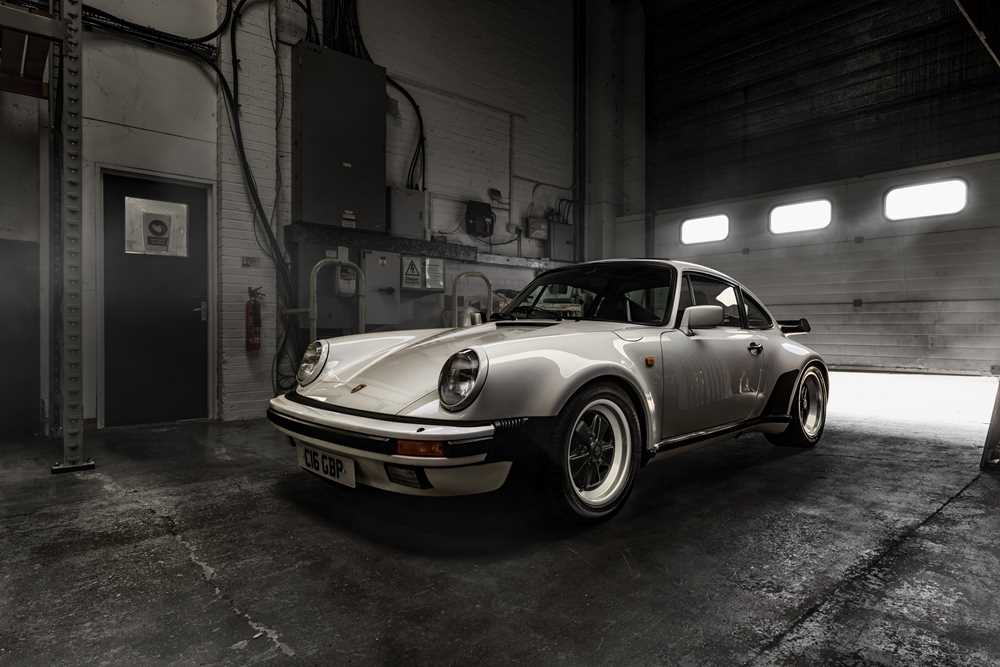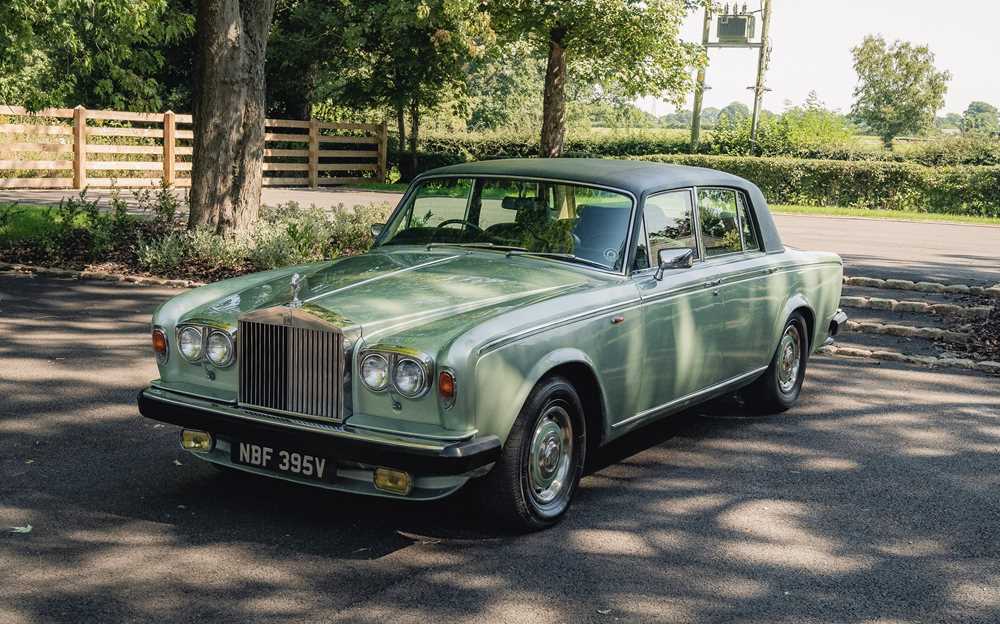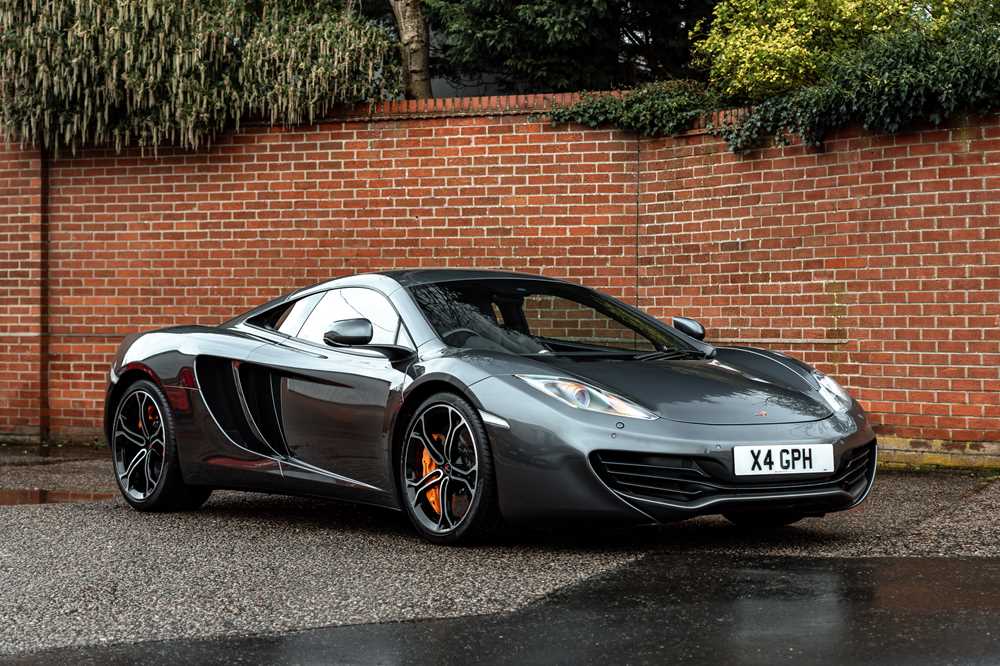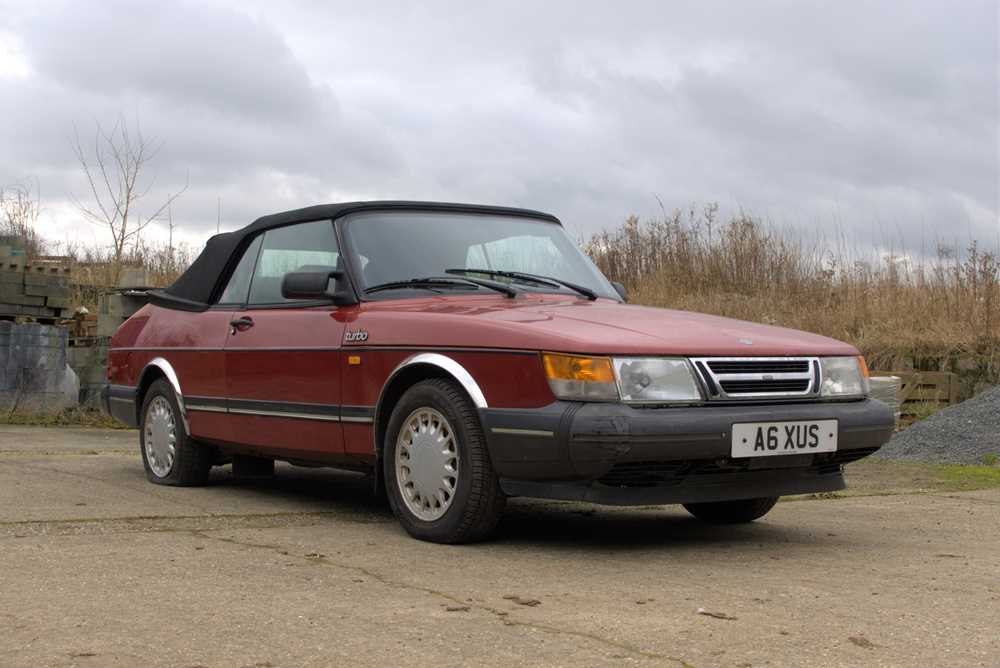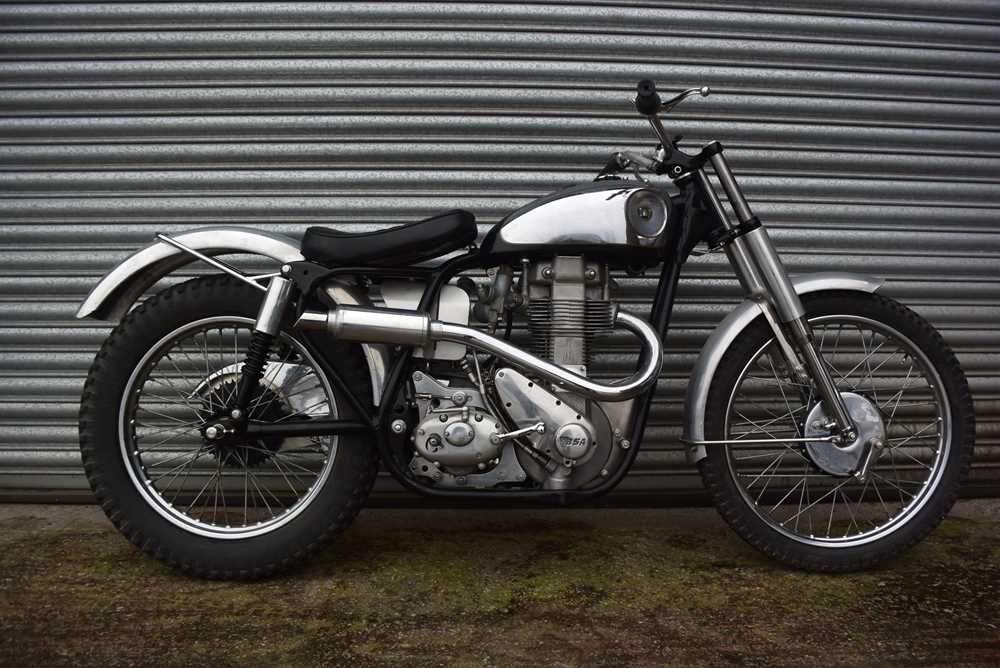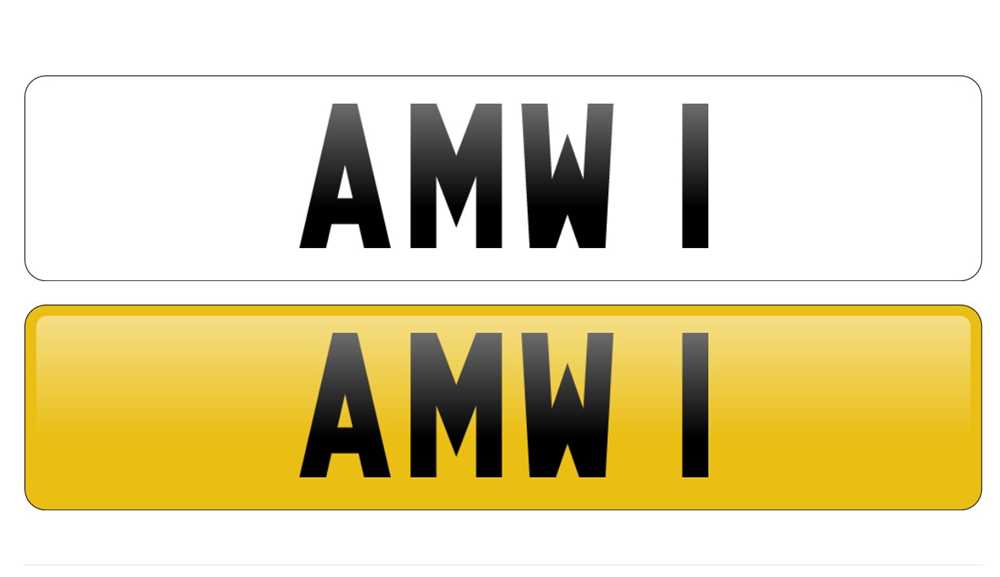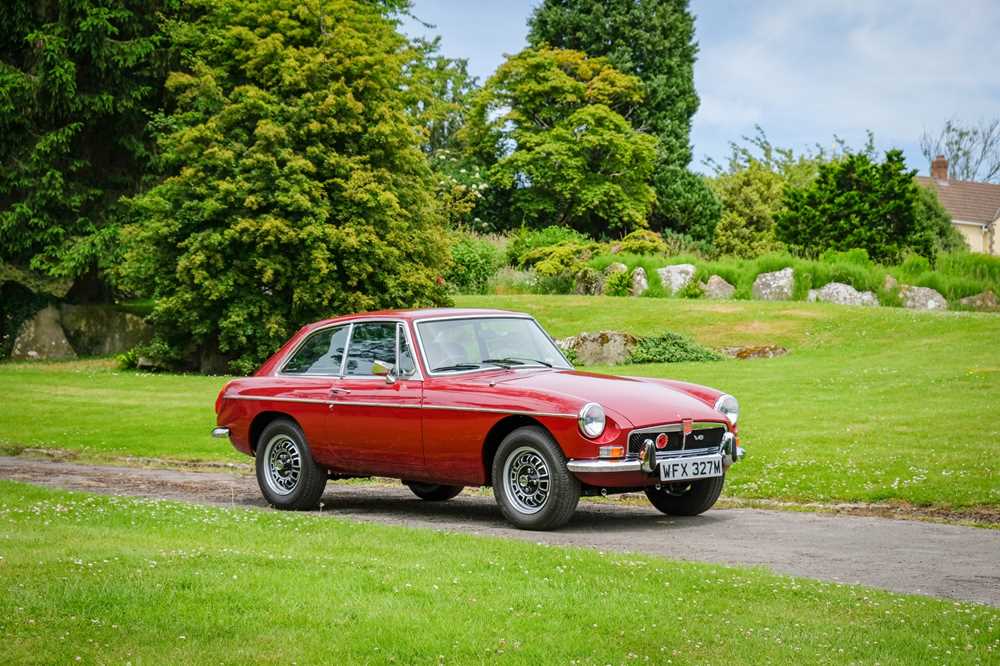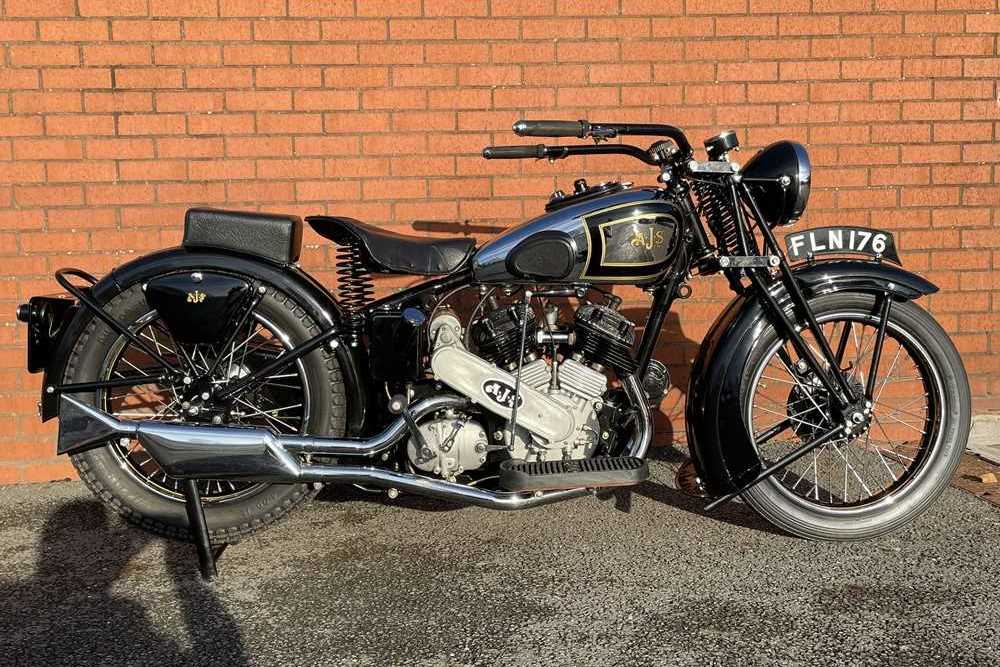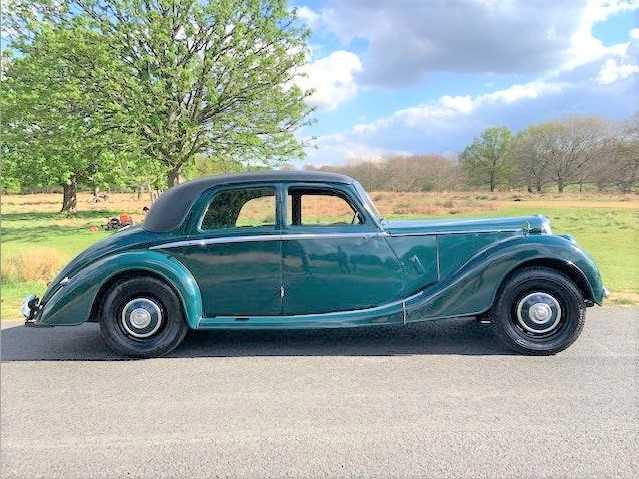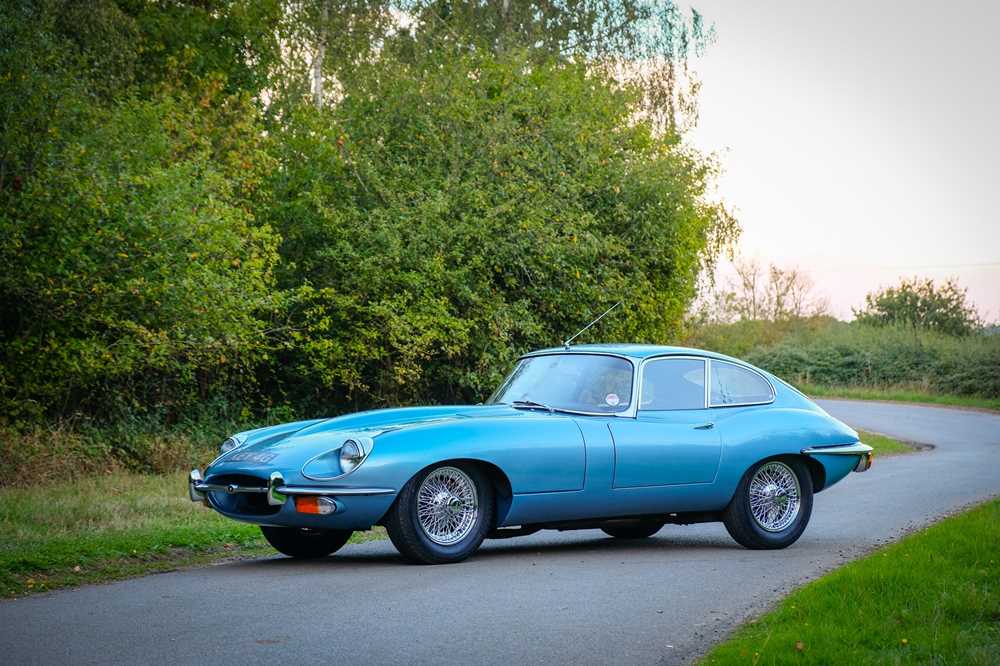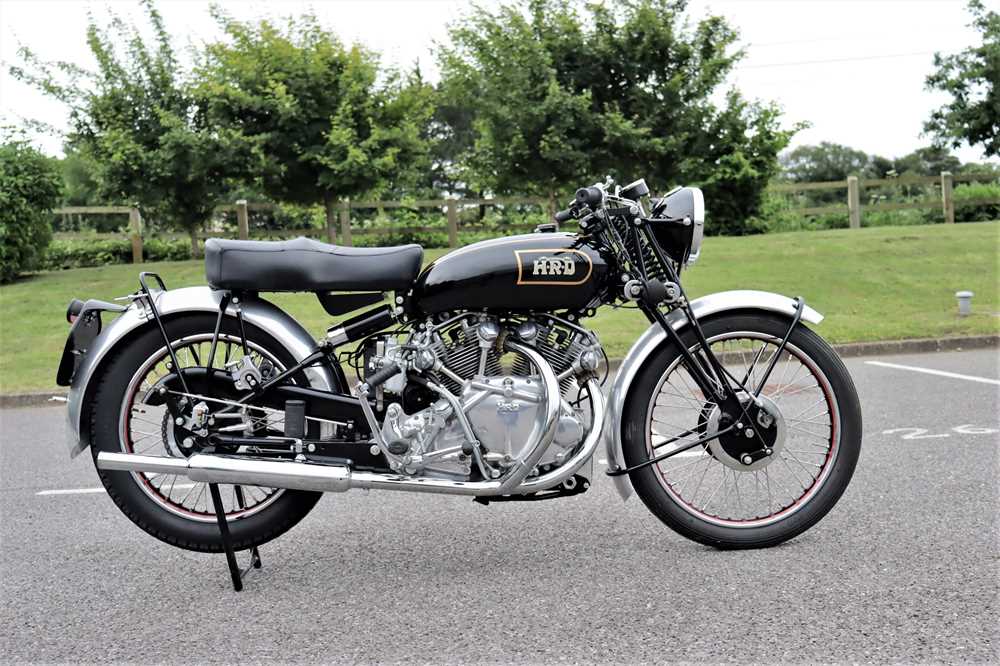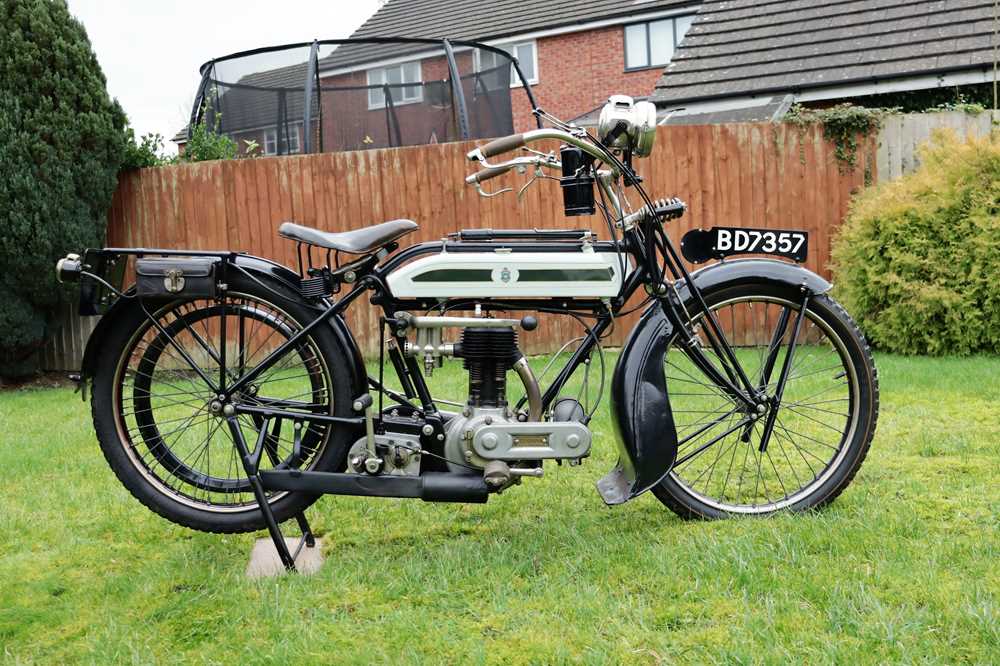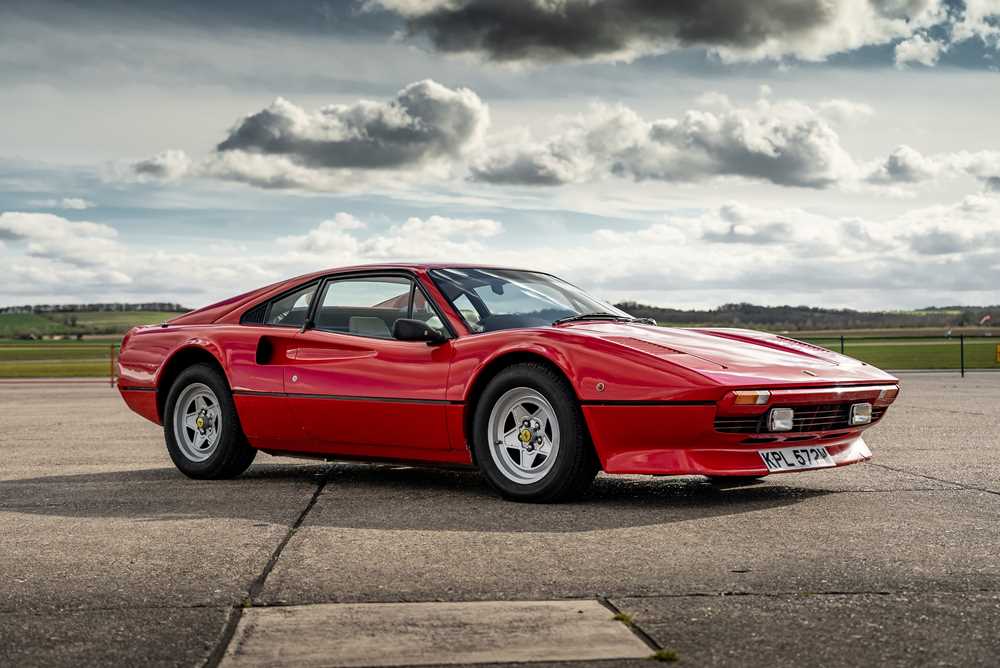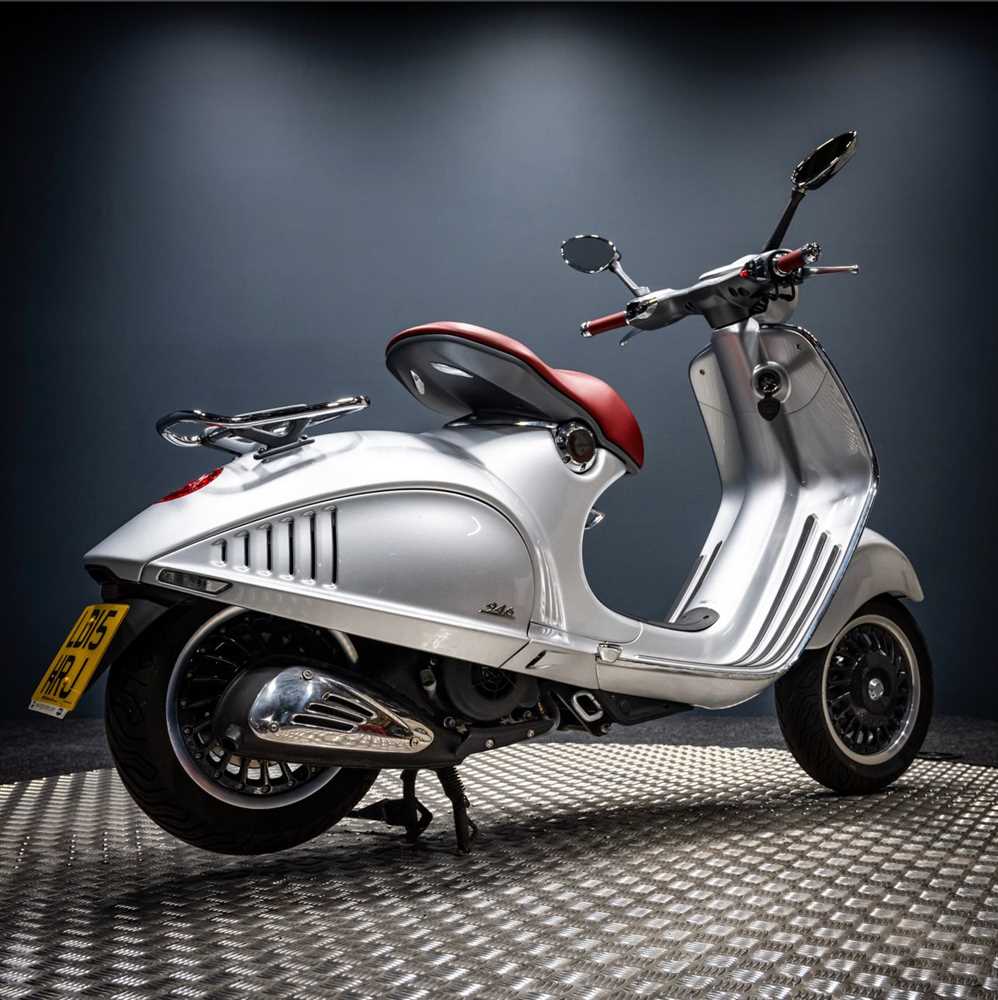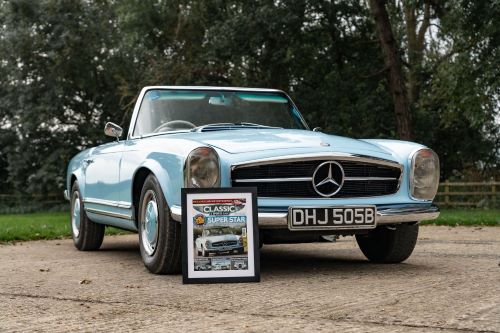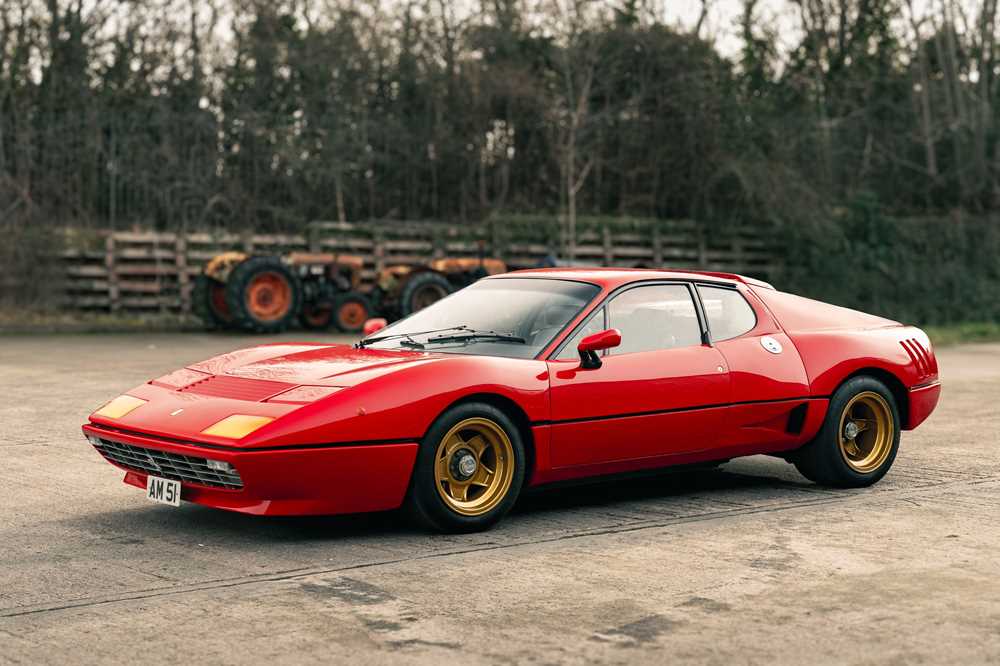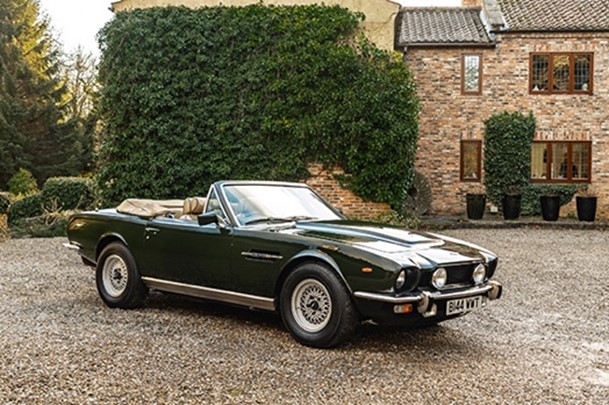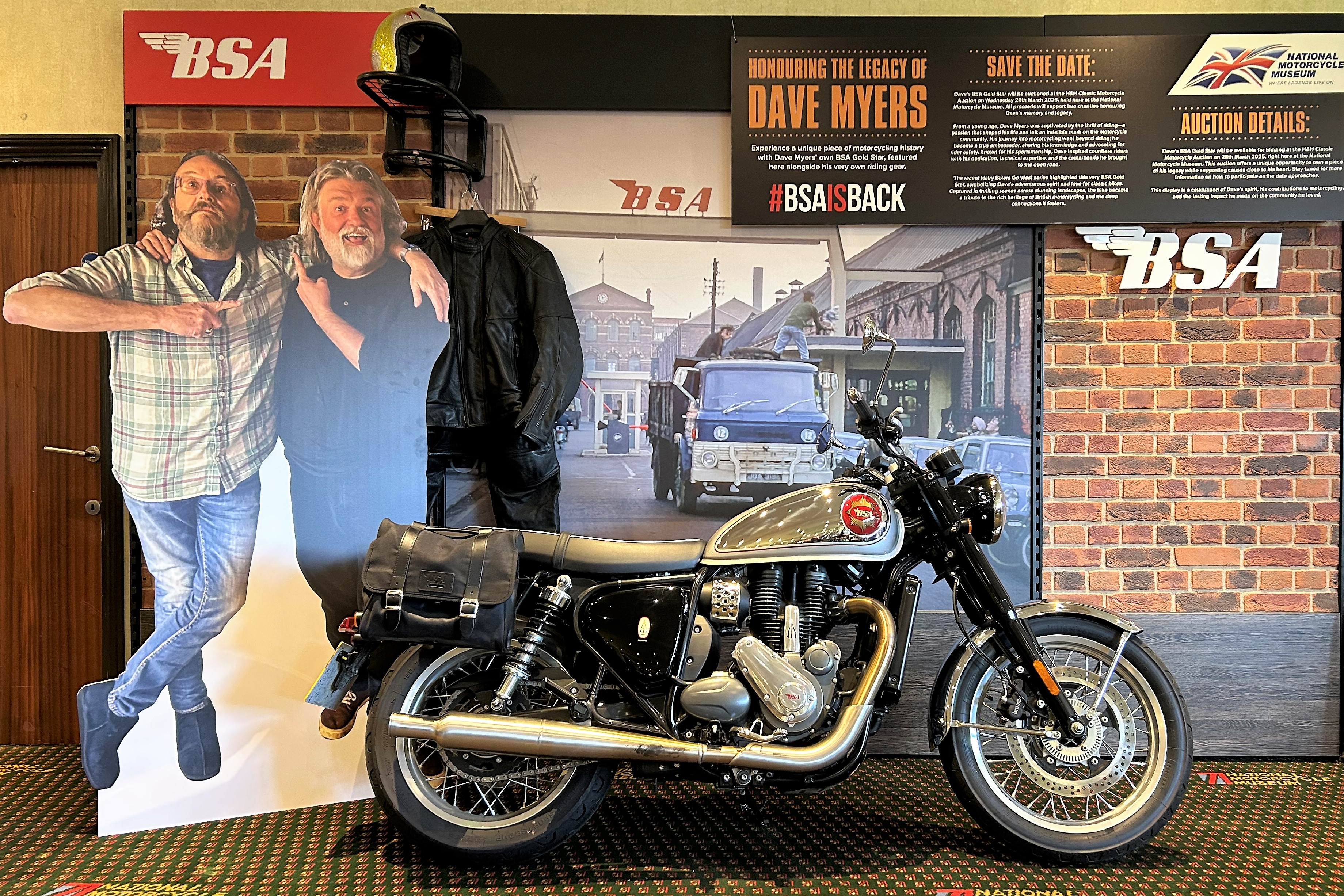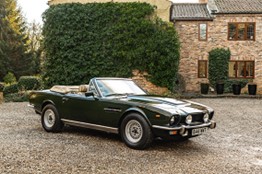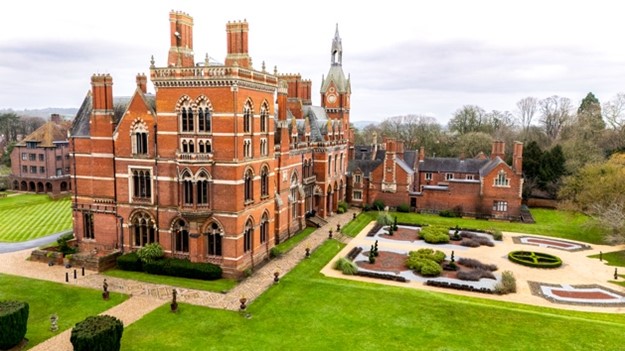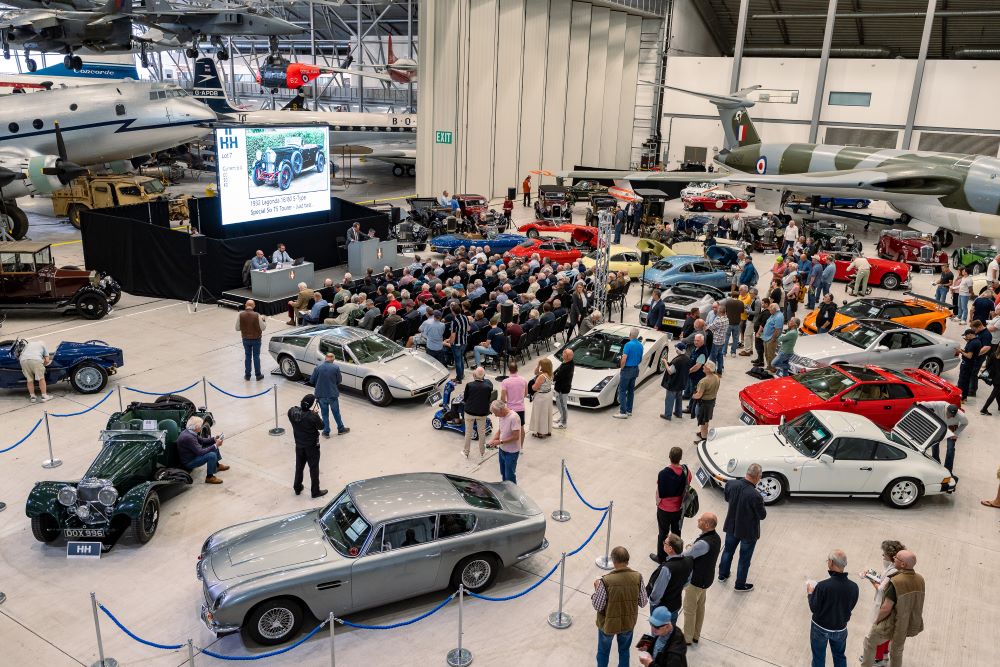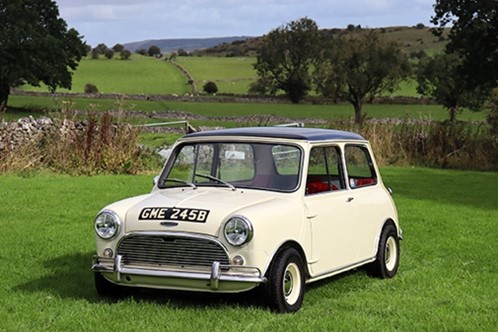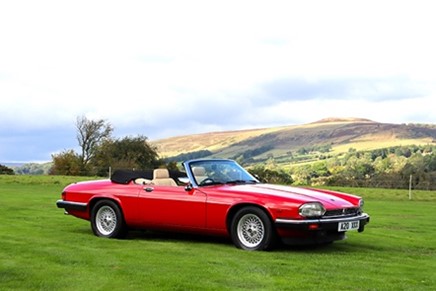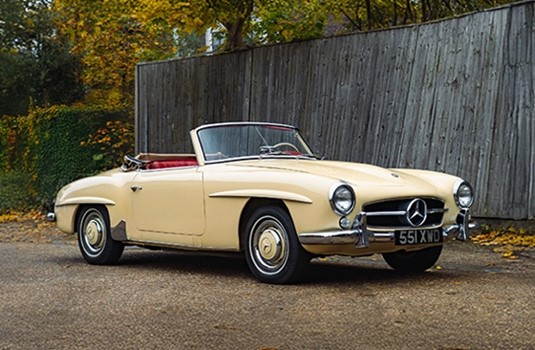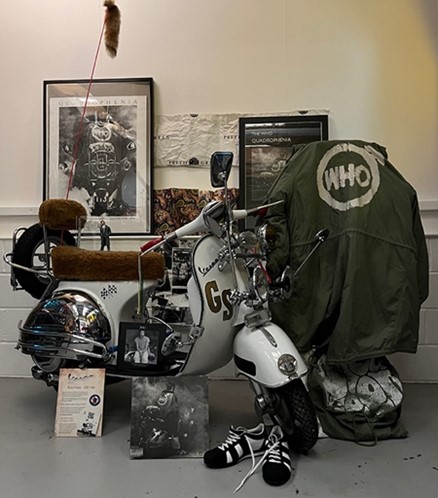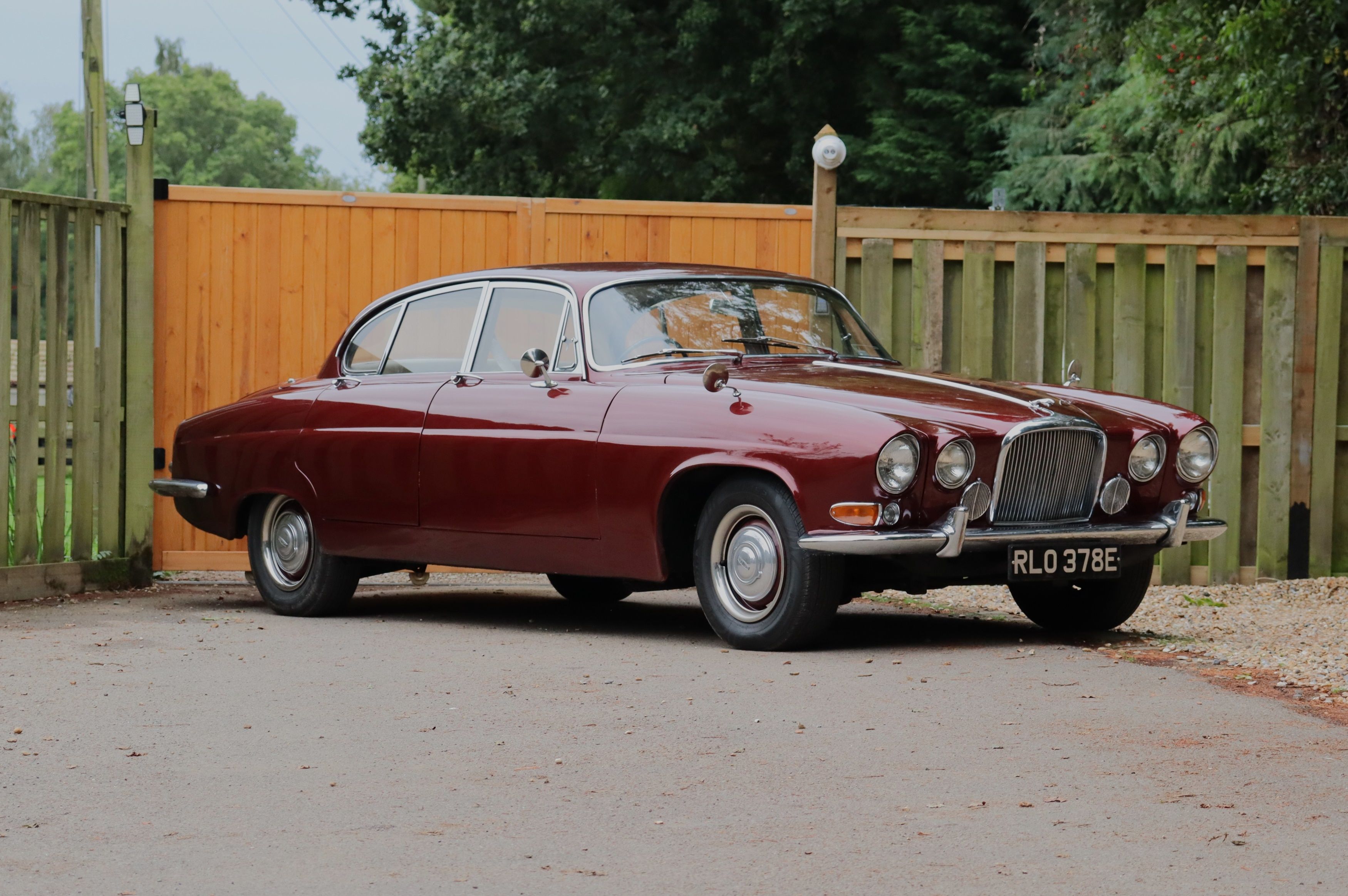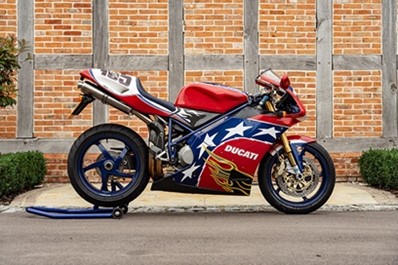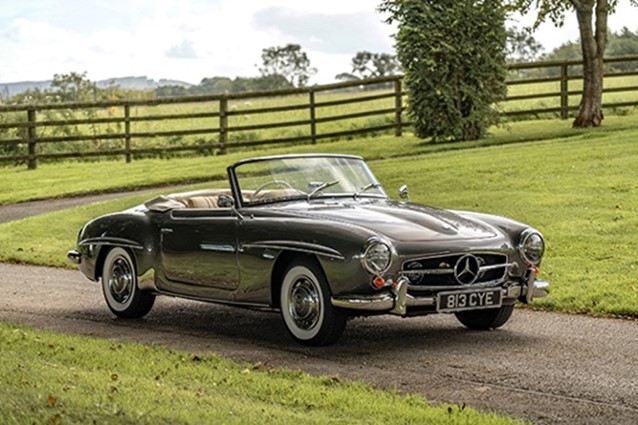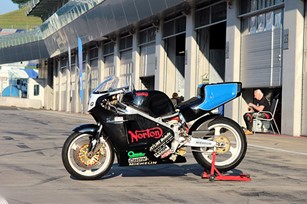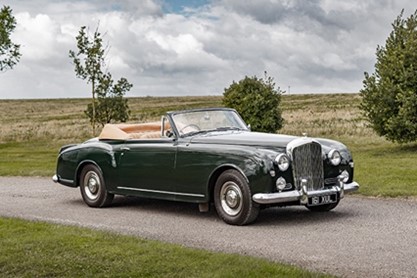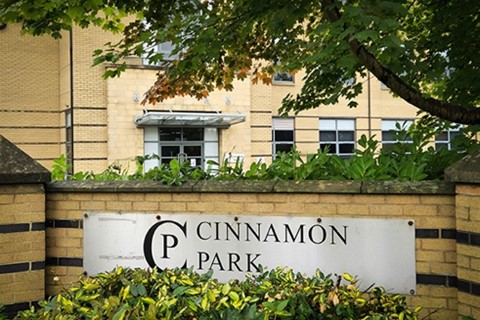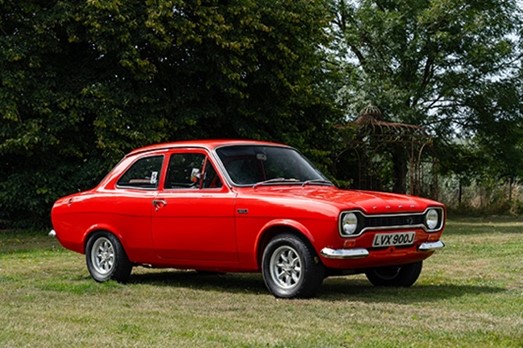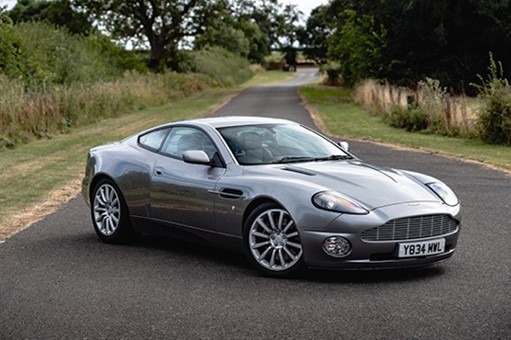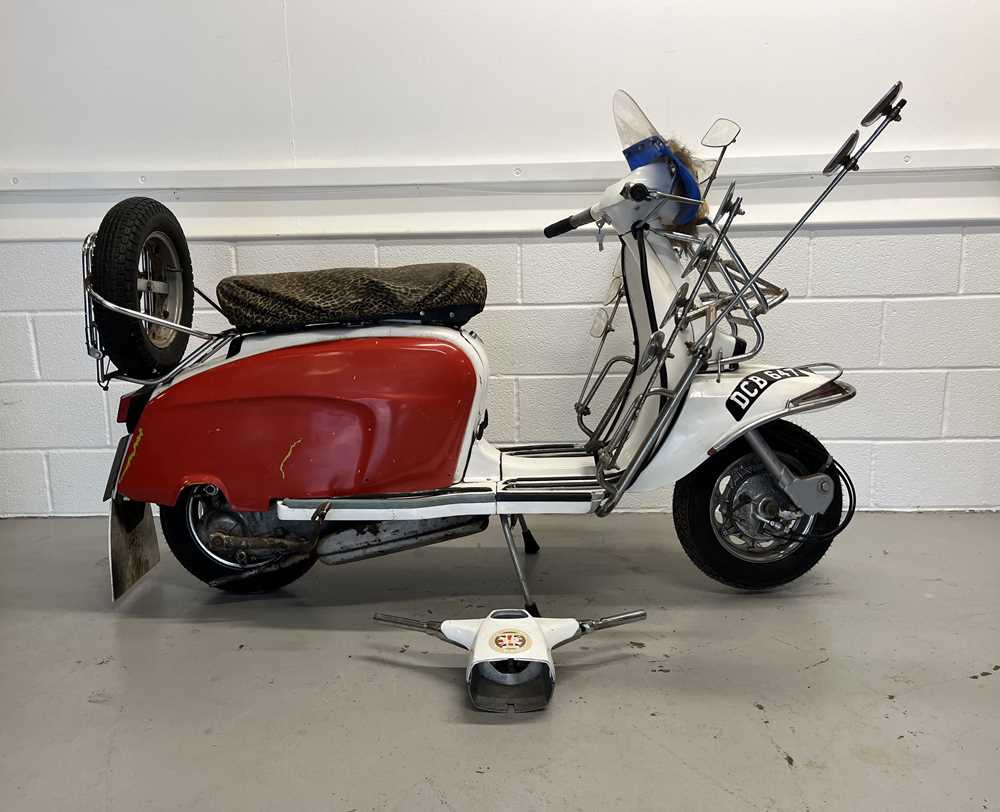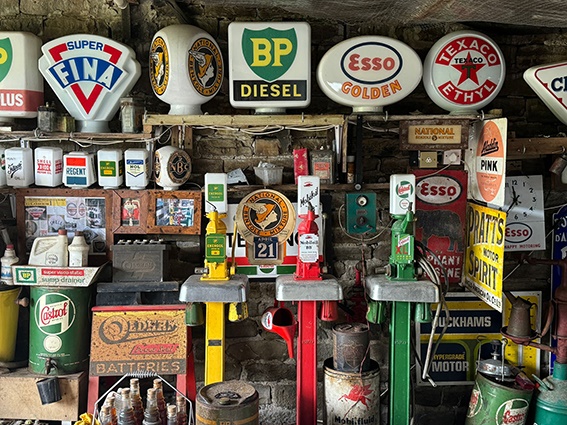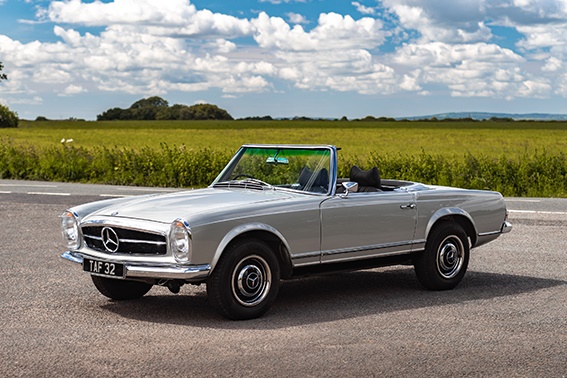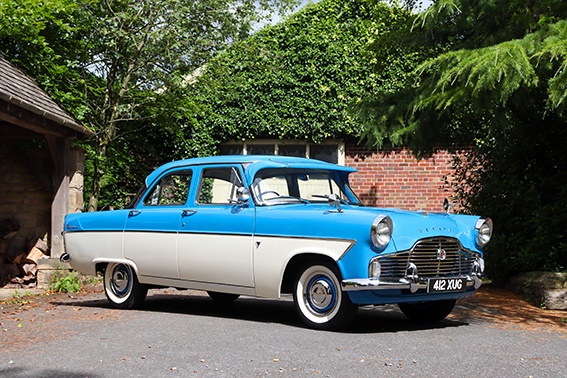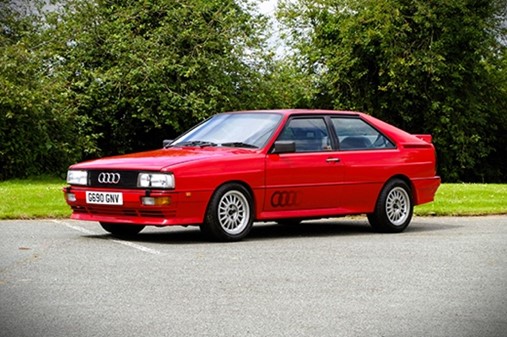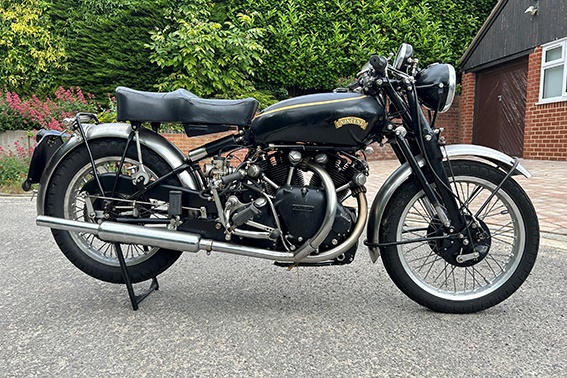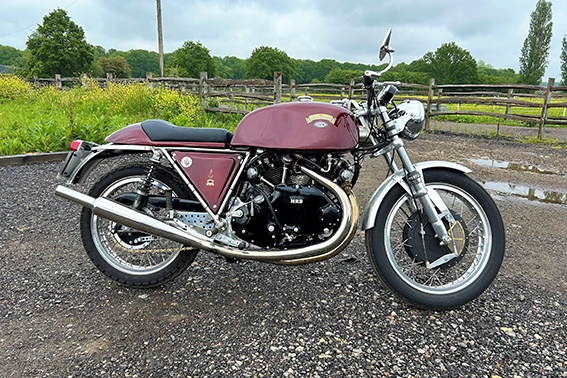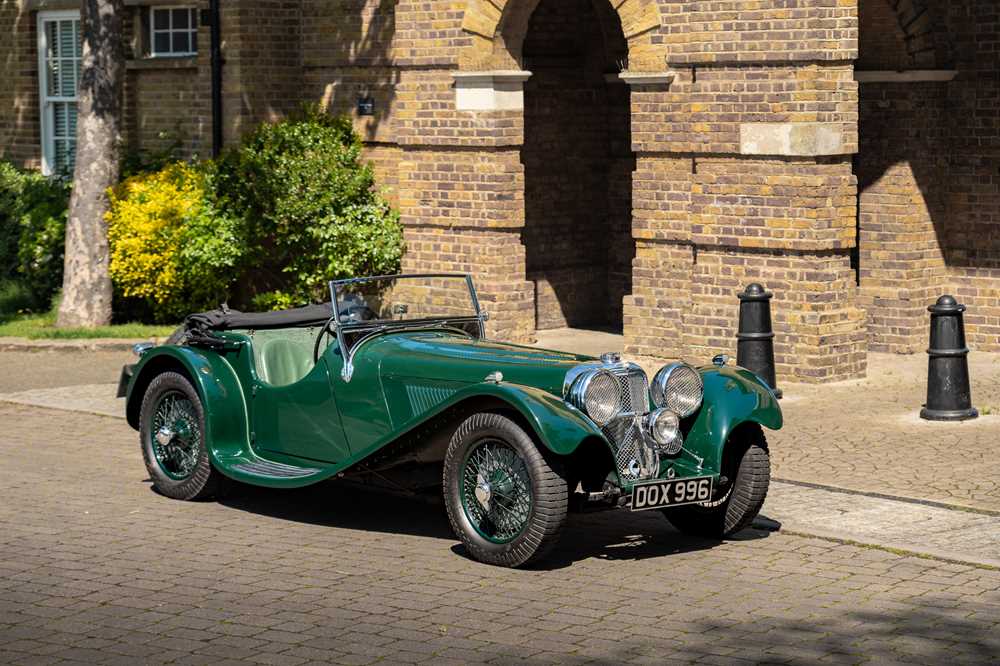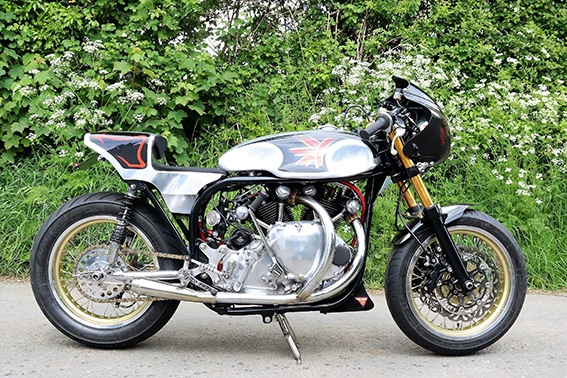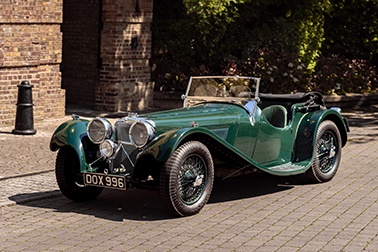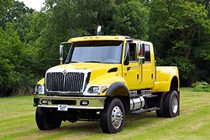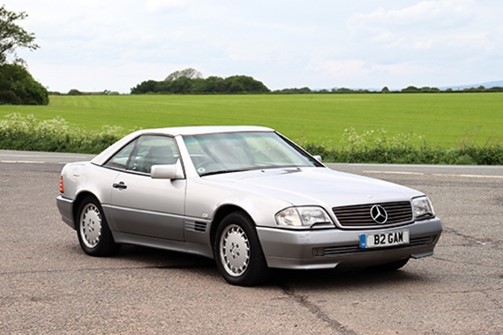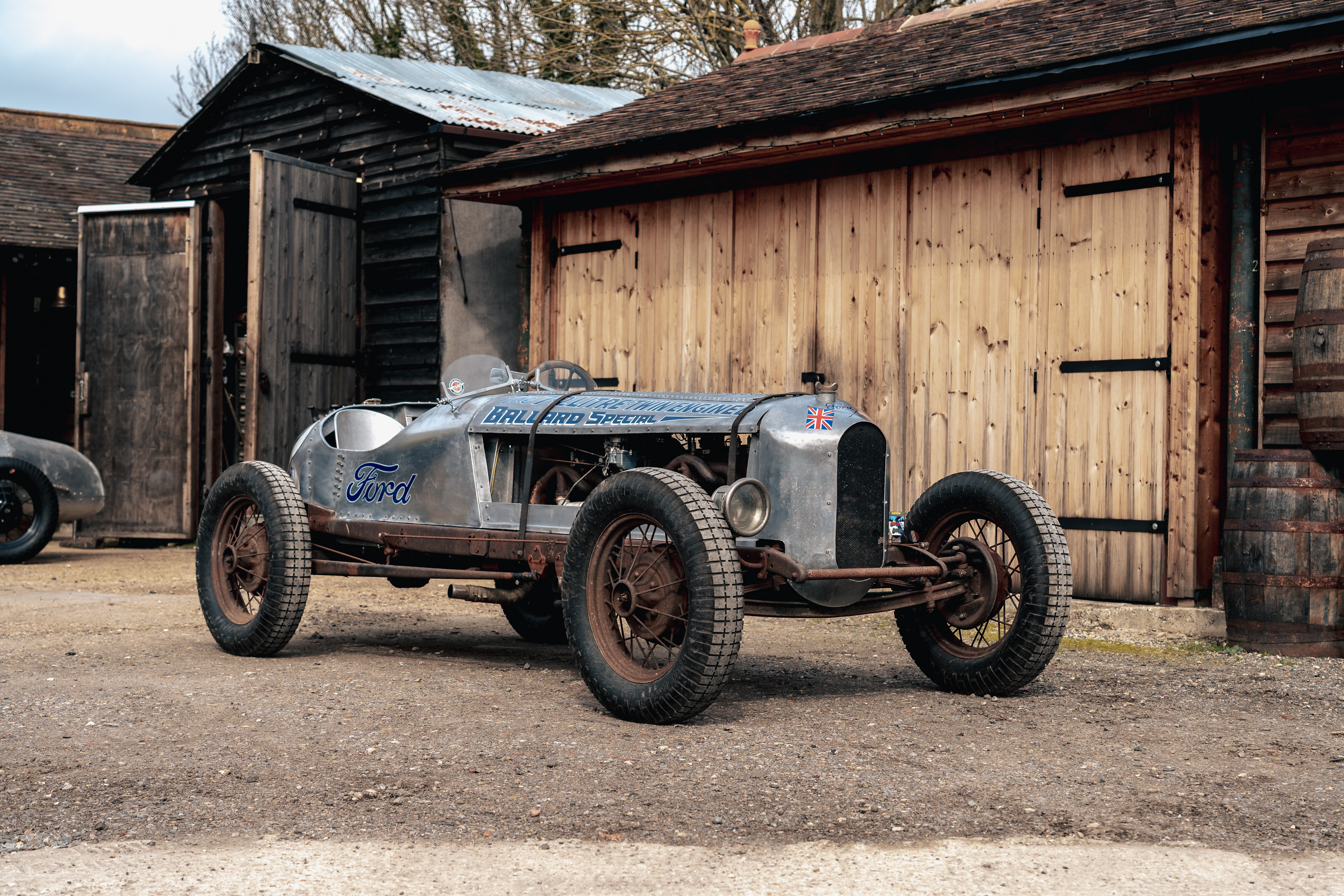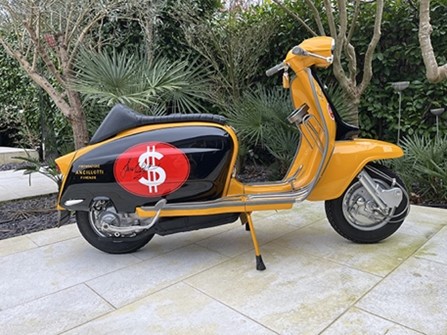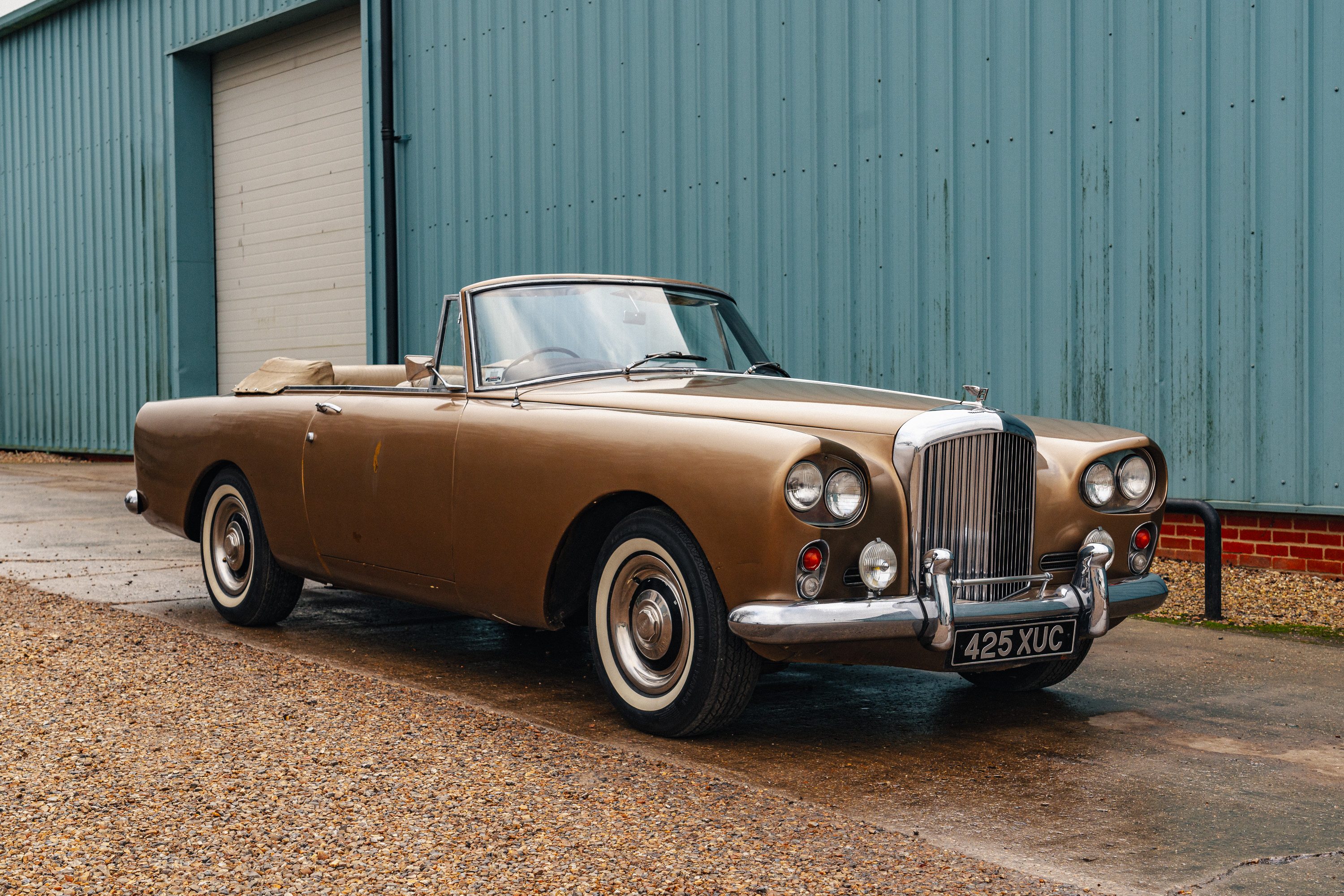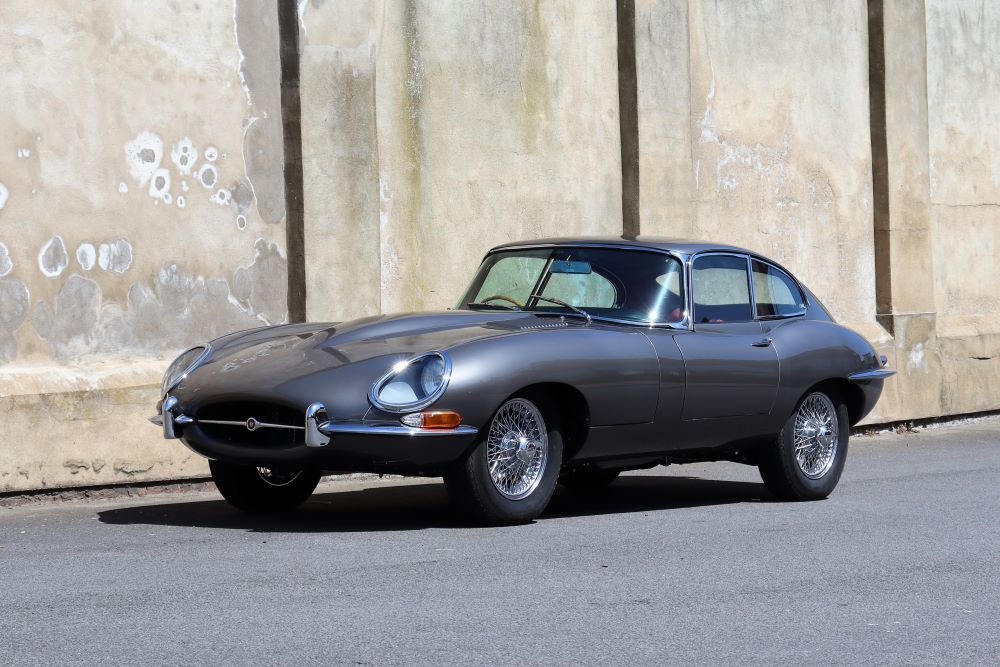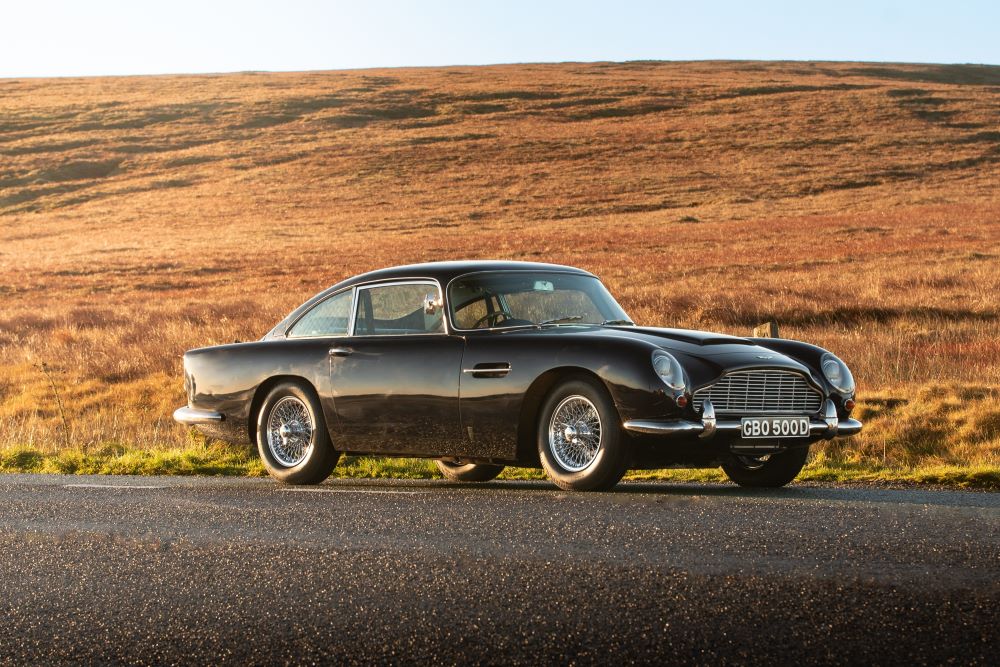15th Mar, 2023 13:00
Imperial War Museum | Duxford, Cambridgeshire
1923 Bentley 3 Litre Tourer - 'Wilfred'
Current ownership for 60 years
Sold for £157,500
(including buyers premium)
Registration No: KLY 3
Chassis No: 110
MOT: Exempt
- Raced at Brooklands by Cecil Wingfield Twisleton-Wykeham Fiennes (ancestor of Sir Ranulph Fiennes and the actor Ralph Fiennes)
- Uprated in period with four-wheel brakes, twin SU Sloper carburettors and a taller diff etc
- Current ownership for sixty years
- Driven to the marque's 50th Anniversary celebrations with the famous racing journalist and former Bentley Boy S.C.H. 'Sammy' Davis aboard and also photographed with W.O. Bentley
- Briefly inspected by the renowned W.O. Bentley historian and author Clare Hay
"It was not the means whereby the 3-Litre Bentley performed, but the manner in which it did it, that endeared the car to sportsmen who took pride in their driving. The engine was remarkably flexible, strong and reliable, the gear ratios were admirably chosen, the handling excellent and the quality unremittingly high. So, also, was the price, but an ever-growing reputation, augmented by striking racing victories, including the Le Mans 24 hours of 1924 and 1927, ensured its success" - 'Classic Sports Cars' by Cyril Posthumus and David Hodges.
A railway engineering apprentice turned aero engine designer, Walter Owen Bentley previewed his first creation, the immortal 3-Litre, at the October 1919 London Motor Show (though, he would not deem it production ready for another two years). Inspired by a 1914 Humber TT racer, the newcomer's ladder-frame chassis was equipped with all-round semi-elliptic leaf-sprung suspension and rear-wheel drum brakes (four-wheel brakes becoming the norm from 1924 onwards). The car's heart and most advanced feature was its 2996cc engine. A long-stroke four-cylinder (80mm x 149mm) that prioritized torque over top-end power, it boasted a five-bearing crankshaft, shaft-driven overhead camshaft, monobloc construction, twin ignition, four valves per cylinder and aluminium pistons. Developing between 65bhp and 88bhp, the unit was allied to a separate four-speed gate-change gearbox. Supplied in bare chassis guise only, albeit with a choice of wheelbase lengths and engine tune, the 3-Litre remained in production until 1929 by which time some 1,621 are thought to have been made. As well as its two Le Mans victories, the Bentley enjoyed considerable success at Brooklands and even broke the 24-hour world record around Montlhery setting a 95mph average speed.
Having gone through chassis 110’s history file in detail, we are of the opinion that it began life as a competition car being driven at Brooklands by Cecil Wingfield Twistleton-Wykeham-Fiennes (a relative of the famed explorer Sir Ranulph Fiennes and the actor Ralph) who gave his address as The Bath Club, 34 Dover Street in London’s Mayfair. Interestingly, Chassis 109 and 111 were delivered in September and June 1922 respectively, so the sale car may well have been completed in 1922 too. A copy letter on file from none other than Bill Boddy, the founding editor of Motorsport magazine and author of ‘The Story of Brooklands’, to the 3 Litre’s custodian of sixteen years (1947-1963), Dr P.F.A. Watkins states: ‘There is no possible doubt that your Bentley is the one raced by Capt. Fiennes. I have checked the BARC records and the engine and chassis numbers agree’. Nicknamed ‘Turkey’, C.W. Fiennes campaigned a variety of Bentleys, MGs and Rileys at the famous Surrey circuit as well as piloting an Invicta during the 1929 Le Mans 24-hours. Christened ‘Wilfred’, the 3 Litre is known to have finished third in the thirty-fifth 100mph short handicap and to have won a 90mph Long Handicap having recorded two laps at 92.23mph.
Built on the 4th June 1923, the first dated entry in the 3 Litre’s accompanying Kingsbury factory service record notes ‘car stripped for racing’, plus the addition of a ‘clutch stop’ and ‘15/50 rear axle ratio’, while the second one references the fitment of ‘Hartford shock absorbers, hourglass-type high-compression pistons, TT induction pipe and Claudel carburettor’. The same document shows that a 14/53 rear axle ratio was installed on 15th December 1923 and the car ‘Standardised’ five days later. The Bentley is thought to have been returned to roadgoing specification prior to being sold second-hand for the princely sum of £525 to Angus Douglas Vickers whose family owned the industrial conglomerate of the same name (including the Brooklands-based Vickers Flying School). Only twenty or so years old at the time, Mr Vickers never campaigned the 3 Litre but had it uprated in 1924 with twin SU ‘Sloper’ carburettors and front wheel brakes. He is also understood to have used the Tourer to commute between Tulloch Castle in the Scottish Highlands and Temple Dinsley in Hertfordshire. Treated to a light engine overhaul during 1925, that same year saw the Bentley acquired by Flight Lieutenant (and later Squadron Leader) John Brooke DSC of the Royal Aero Club, Piccadilly. The 3 Litre is believed to have accompanied the RAF officer to Greece when he was stationed there during World War Two. The last keeper recorded on the Kingsbury service record, Mr Brooke’s updated address is given as ‘Hotel Grande Bretagne, Athens’. A frame repair is listed in 1935 with the recorded mileage standing at 98,040 four years later.
The advent of peace witnessed the Tourer pass through the hands of H.E. Newman of Bletchley and F.G. de B. Hart of South Hill Park, London NW3 before being bought by Dr P.F.A. Watkins of Swindon on May 12th 1947. The latter crashed it severely enough the following year to necessitate the fitment of a replacement chassis frame (ex-chassis 712). His handwritten log from the time details the offside rail being broken and the rear axle being laterally displaced by three inches. However, the identity of, and claim to, chassis 110 was never relinquished. Entering the current ownership in 1963, the Bentley is able to boast a continuous history from new and still retains a number of early original features such as the switch plate (clearly numbered 110), engine crankcase (clearly numbered 104) and petrol tank. The opportunity was taken once the repairs had been completed to re-register the 3 Litre as ‘KLY 3’ and thus have it reclassified for road tax purposes (into a lower bracket). Entrusted to the likes of renowned specialists Tony Townsend (who helped source it) and Arthur Archer over the years for maintenance, the four-seater had its valve-gear overhauled by Fopp d’Hane during 2004 with attention also being paid to the magnetos, tyres and carburettors. Widely acknowledged as the inspiration behind ‘Thoroughbred & Classic Cars’ magazine, the vendor has also contributed to Autocar, CAR and The Automobile. A lifelong enthusiast, he jumped at the chance to ferry the renowned racing journalist and former ‘Bentley Boy’ S.C.H. ‘Sammy’ Davis to Le Mans aboard ‘KLY 3’ as part of the marque’s 50th Anniversary celebrations in 1969. Given the chance to interview W.O. Bentley, the vendor ensured that he obtained a photo of the great man behind the wheel of the 3 Litre with the image subsequently gracing the front cover of Autocar magazine.
A new ‘water pipe (lower) pump outlet to block’ was purchased in 2017, but ‘KLY 3’ has been essentially unused since and would doubtless benefit from recommissioning / checking over. Coming to market for the first time in sixty years, the Bentley’s large and impressive history file includes an email from the highly respected W.O. Bentley historian and author Clare Hay which reads as follows: ‘This is beyond reasonable doubt chassis 110, rebuilt with a replacement chassis frame after the war’. Noting that the 3 Litre’s initial chassis frame has been refurbished and recycled into another car in more recent years, she continues: ‘To my mind the earlier chassis frame is a discarded spare part, so no claim on identity’. Accompanying paperwork also includes a buff log book, Dr Watkins’ handwritten log detailing the late 1940s rebuild, Three Litre Bentley handbook, Technical Facts of the Vintage Bentley manual and numerous photos / bills relating to past work (such as the bodywork restoration carried out by Chisbon Restorations during the late 1980s). The bonnet still carries a patch from whence its Brooklands era side exhaust would presumably have exited, while other desirable features encompass an A-Type gearbox, upgraded ‘four star’ differential, early SU Sloper carburettors and the four-wheel brake conversion (meaning that the 9ft 9½in wheelbase car is effectively to Speed Model specification). A rare opportunity to acquire a W.O. Bentley from very long-term ownership and with a unique and fascinating backstory.
For more information, please contact:
James McWilliam
james.mcwilliam@handh.co.uk
07943 584760
Auction: Imperial War Museum | Duxford, Cambridgeshire, 15th Mar, 2023
Established in 1993, H&H has sold some of the world's most significant motorcars and motorcycles over the past 30 years. Trusted by over 75,000 clients worldwide, we are the longest established auction house of our kind in Europe.
An auction of classic, collector and performance motorcars to be held at the iconic and visually stunning Imperial War Museum, Duxford. Cambridgeshire.
Bidding will take place live at the venue, online via our website, by telephone and commission.
Parking and entry into the auction is free for auction attendees with a catalogue, available at the door.
To enquire about entering your motorcar into the auction please call our sales office on 01925 210035, email sales@HandH.co.uk or click the Valuations For Sale button below.
All our professional valuations are complimentary and without obligation.
Auction Venue Valuations for Sale View Catalogue
Register to Bid Order a Catalogue
VIEWING TIMES
Tuesday 14th March 2023, from 12pm to 6pm
Wednesday 15th March 2023, from 9am
To log in or register for an account please click 'Register to Bid | Sign In' at the top of the page
All successful bids must be paid in full by midday the day after the auction at the latest.
You can collect your new pride and joy from our venue until 1pm the day following the sale or our partners are on hand to help arrange safe transportation:
Do you have an item to sell?
If so, contact one of our friendly specialists for your free valuation by completing the form below and someone will get back to you as quickly as possible.
If you prefer to speak to humans, don't hesitate to call our office on +44 (0)1925 210035
Other lots in this sale
